Tough Guys with Big Problems
In which Norm finally gets caught up to with the various 4K editions of DARK CITY, SWORDFISH, COBRA and LETHAL WEAPON. It's gonna get sweaty.
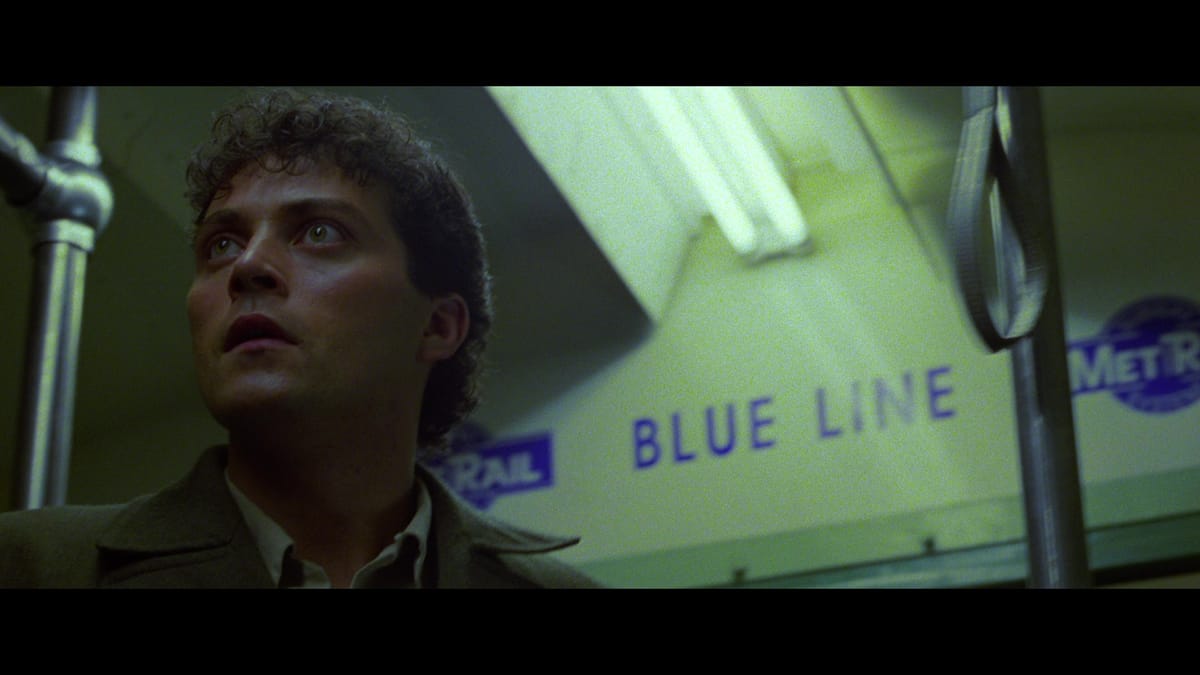
This column has taken a while to put together – partly because the labels are still having shipping issues for certain titles, but I should just admit it: I just don’t care for Dark City, and I’ve been putting off writing about Arrow’s new special edition.
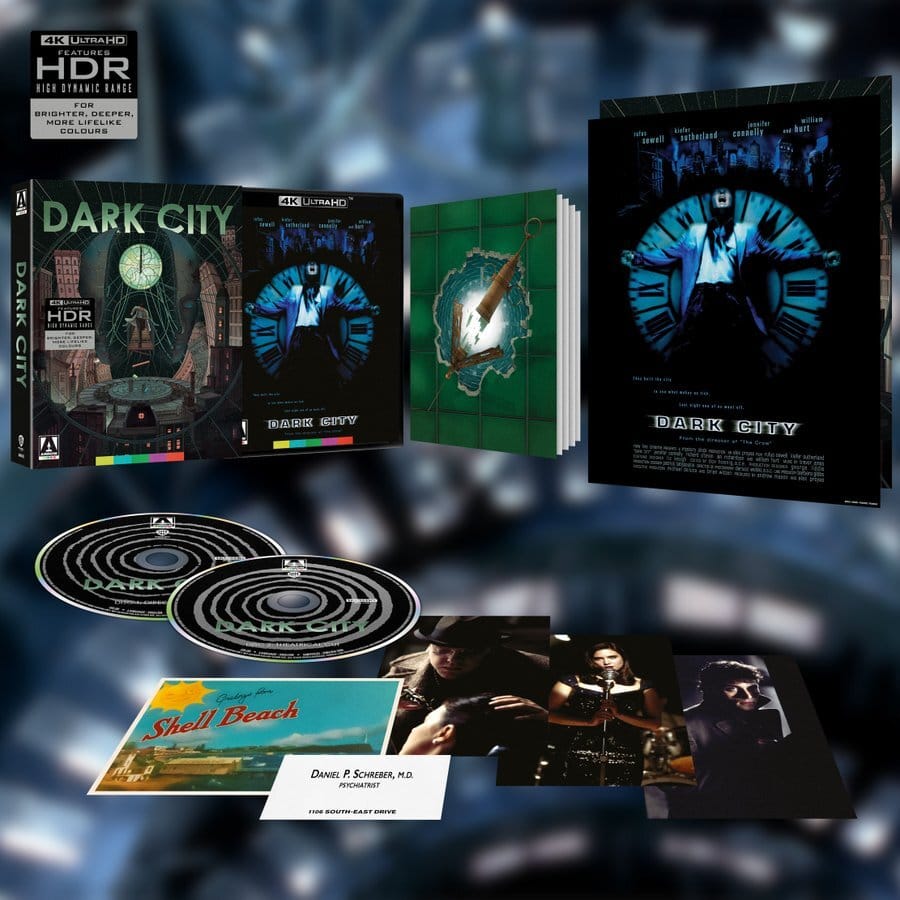
I will understand if some of you cancel your subscriptions right now. But I have never been a fan of Alex Proyas’ sci-fi noir, which was dismissed as an interesting failure when it opened in the winter of 1998, rediscovered a year later when certain critics embraced it as an obvious clear precursor to The Matrix and then re-rediscovered when Proyas released his director’s cut on Blu-ray for the film’s 10th anniversary, extending several scenes and removing the studio-imposed opening voiceover.
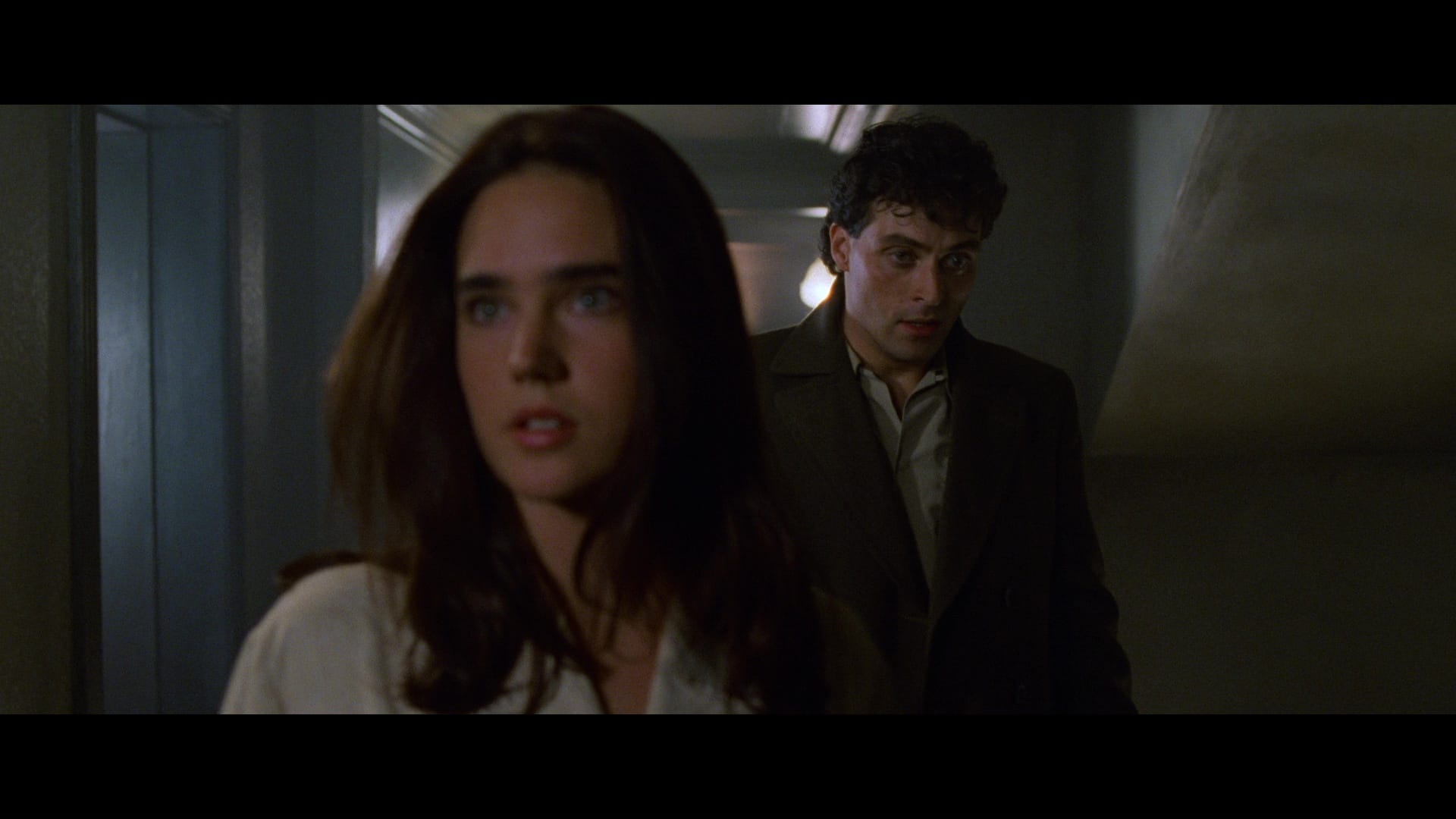
In all fairness, the Proyas cut is somewhat better, its pacing less frantic and more in line with the expressionist vibe of the world he and cinematographer Dariusz Wolski set out to create. But it doesn’t make Rufus Sewell’s amnesiac hero Murdoch any more interesting as a protagonist, because none of these characters is intended to have more than two dimensions, and it doesn’t solve the massive problems in the film’s third act, once the story pivots from noir pastiche into comic-book sci-fi.
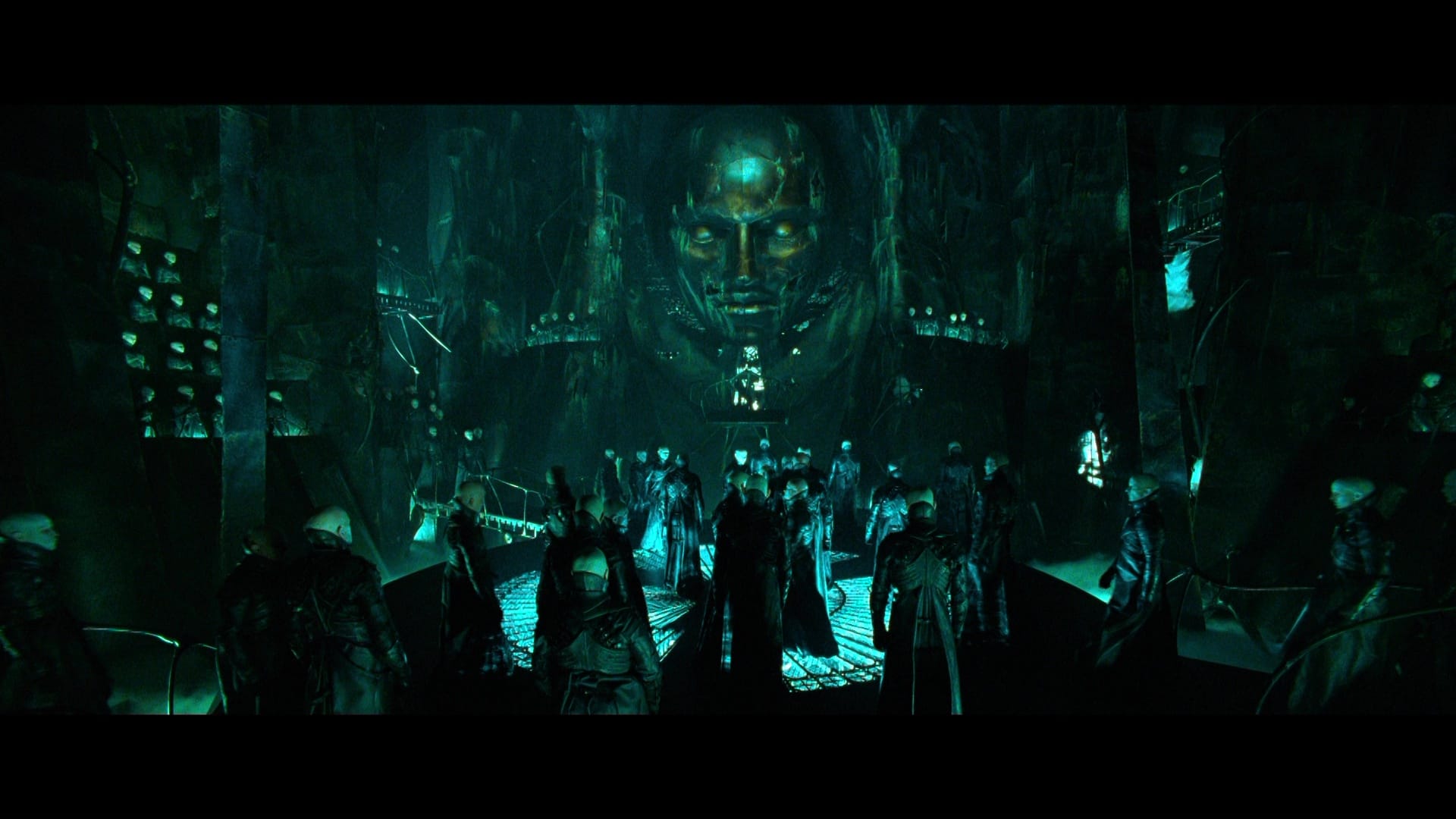
Oh, sure, the twist is great: There were gasps and hoots from my midnight preview audience when the penny dropped, and I’m sure its ingenious spin on the quintessential noir conceit of individuals trying to survive a cynical, uncaring world came from the other credited writer, The Limey’s Lem Dobbs. But once you’ve processed that, Dark City becomes a lot less interesting, just a series of exposition dumps that have the sound of something deep but really just fill time before the big CG climax, in which Murdoch and the big bads fight to the death by staring at each other very hard.
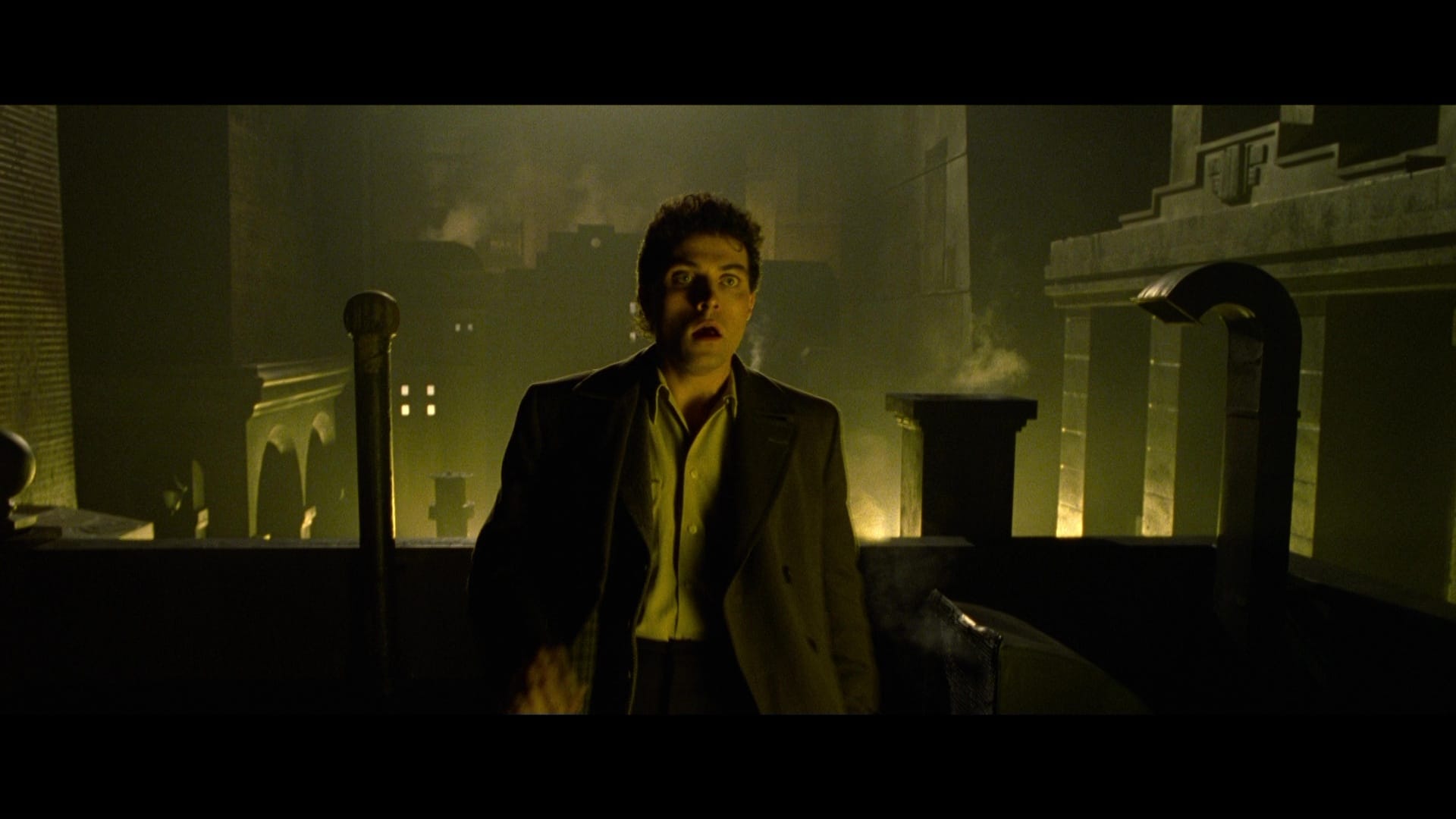
Sewell and co-stars Jennifer Connelly, William Hurt, Rocky Horror creator Richard O’Brien do their best to play the material straight, which just makes everything seem that much sillier – especially when Kiefer Sutherland breaks the illusion every time he turns up as a frothing mad scientist who seems to be modelled on Peter Lorre. At least his performance makes sense within this grab bag of borrowed ideas and environments that adds up to very little. Proyas and his other co-writer David S. Goyer are competent stylists but they’re not idea guys, and once Dark City has played its big card they can’t build anything on it.
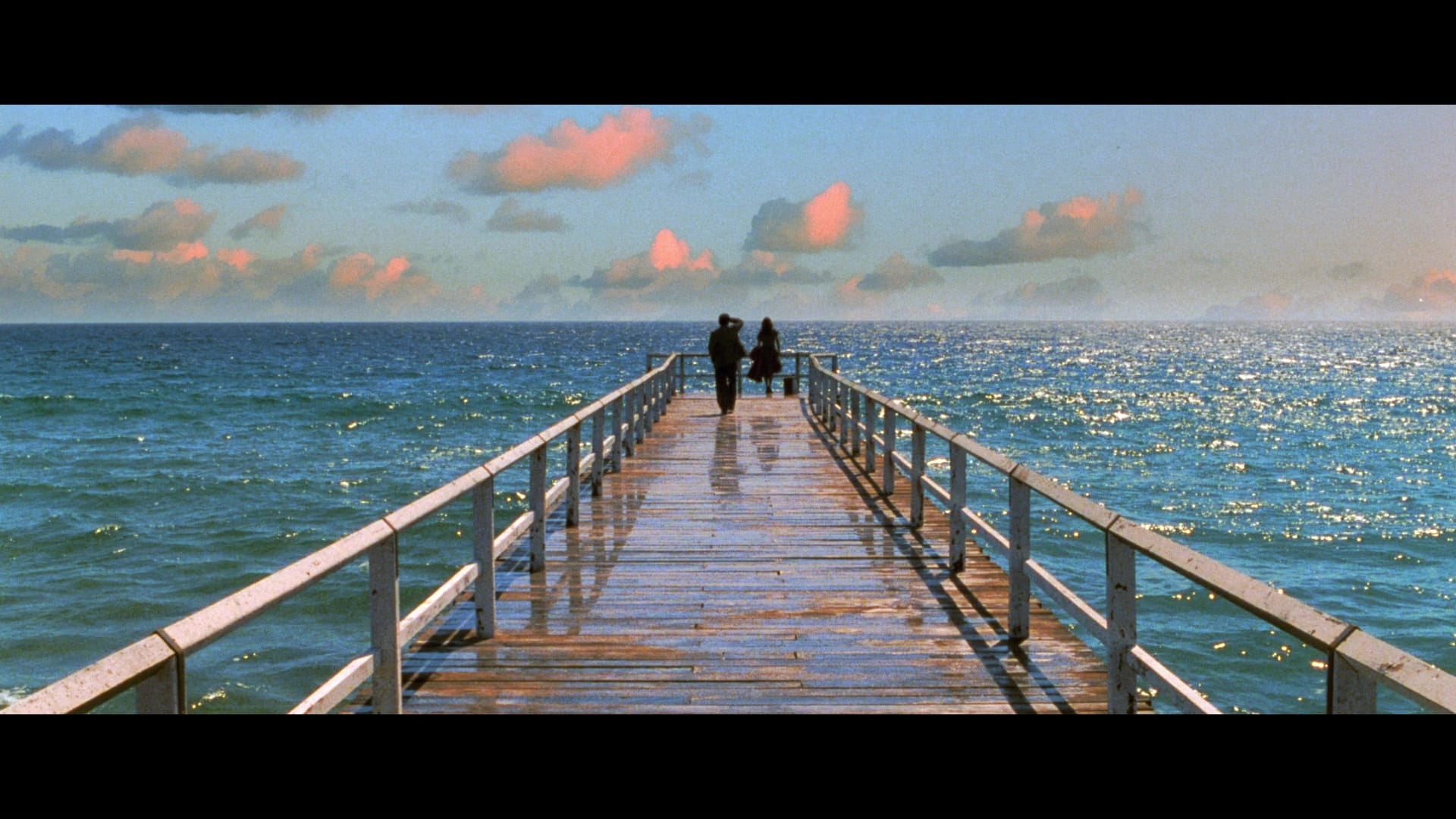
Yes, it shares the same central question as The Matrix – “what if reality isn’t reality” – but once The Matrix tells us what’s really going on it keeps on complicating its world and its characters. The people we meet in the opening act only seem to be ciphers; their generic conflicts and personalities turn out to have new meaning within the larger narrative revealed. (Also, the Wachowskis have a sense of humor.) Dark City doesn’t have any of that; it’s airless, a movie set in a terrarium. At least someone turns the lights on at the end.
All this said, I know other people love this movie, and Arrow has given them a very nice present with its new two-disc limited edition, a handsome collector’s set available in separate 4K and Blu-ray versions. The director’s cut and theatrical cut are each presented on their own platter, with all of the extras produced for their previous New Line Home Video incarnations and a new suite of goodies accompanying the director’s cut.
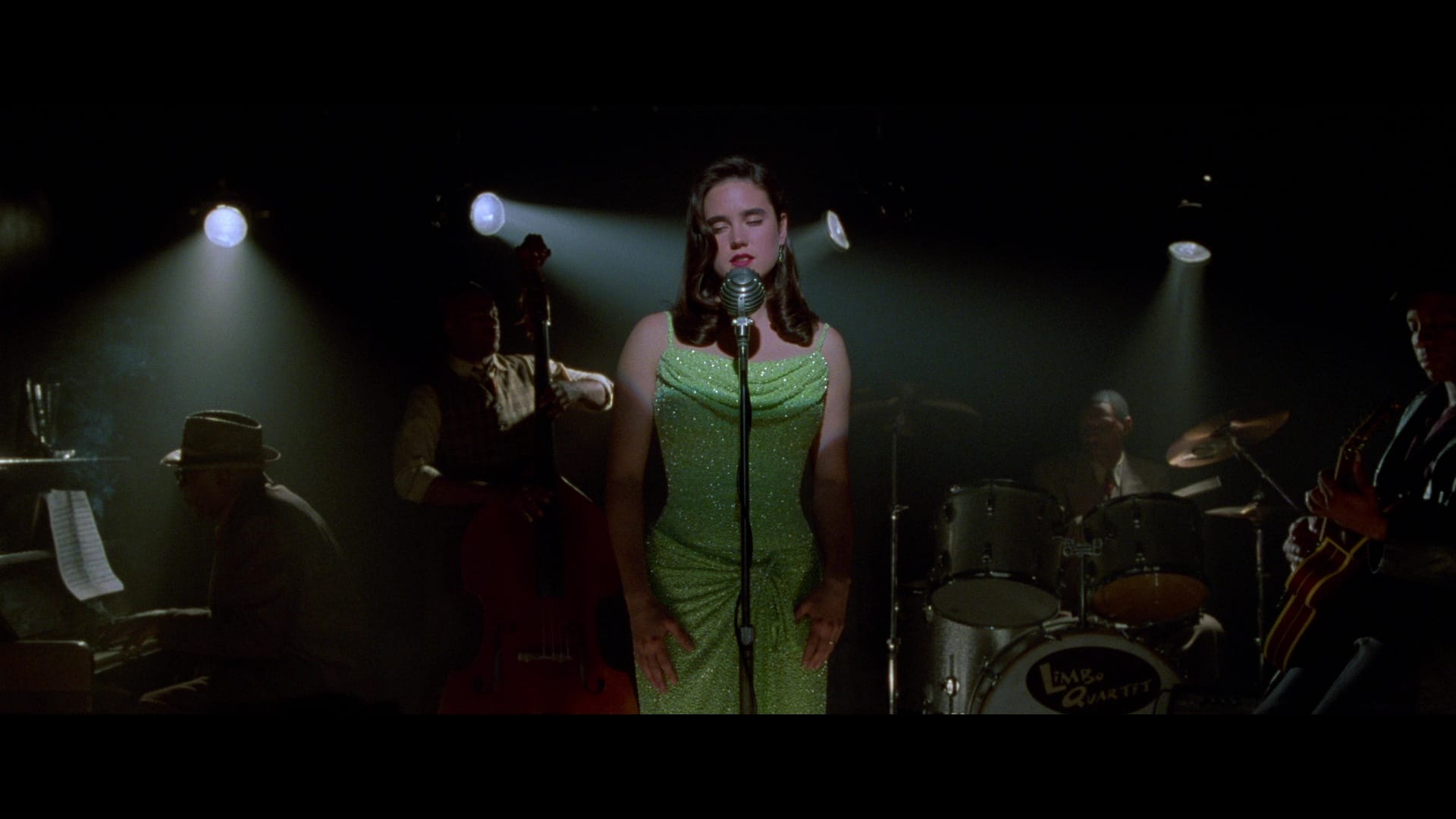
Proyas contributes a new audio commentary for the director’s cut. (The track he recorded for the 2008 Blu-ray is also here, as are the Dobbs-Goyer commentary, an updated version of Roger Ebert’s 1998 DVD commentary, and the introduction to the director’s cut featuring Proyas and Ebert.) There’s also a new track from Film Versus Film podcast hosts Craig Anderson, Bruce Isaacs and Herschel Isaacs, an hour-long retrospective documentary Return to Dark City and two new visual essays – “Rats in a Maze” from Alexandra West, and “I’m As Much in the Dark As You Are,” from Josh Nelson.
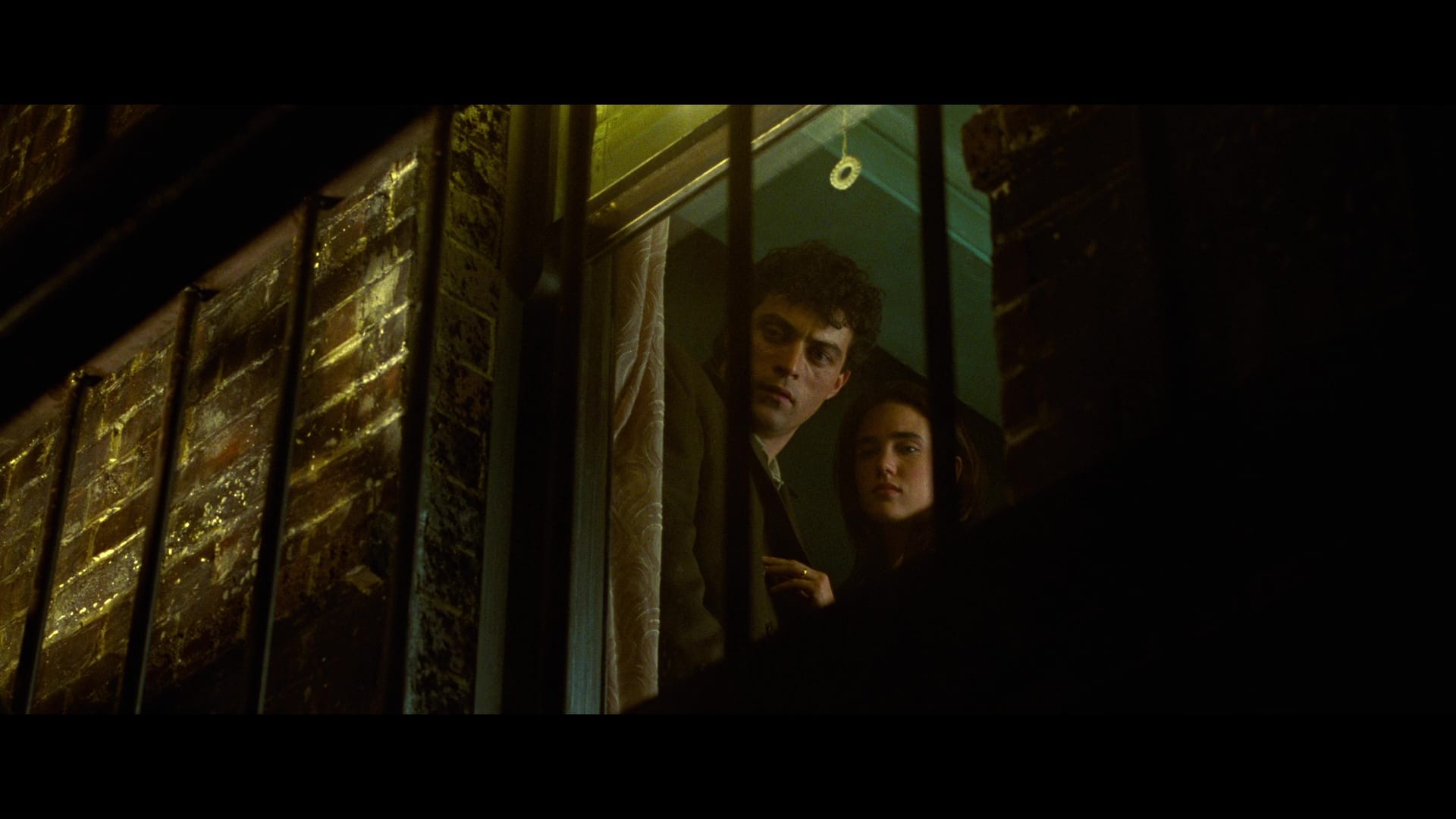
The theatrical cut is accompanied by the original DVD audio commentaries – one with Proyas, Dobbs, Goyer, Wolski and production designer Patrick Tatopoulos, and Ebert’s original critical appreciation – and two featurettes from the 2008 Blu-ray, the retrospective documentary “Memories of Shell Beach,” in which Proyas, cast and crew argue for the film as an overlooked masterpiece, and the more cerebral “Architecture of Dreams,” which attempts to place Dark City in the pantheon of post-modern sci-fi cinema. They’re pretty good pieces, even if I disagree with them on an almost molecular level.
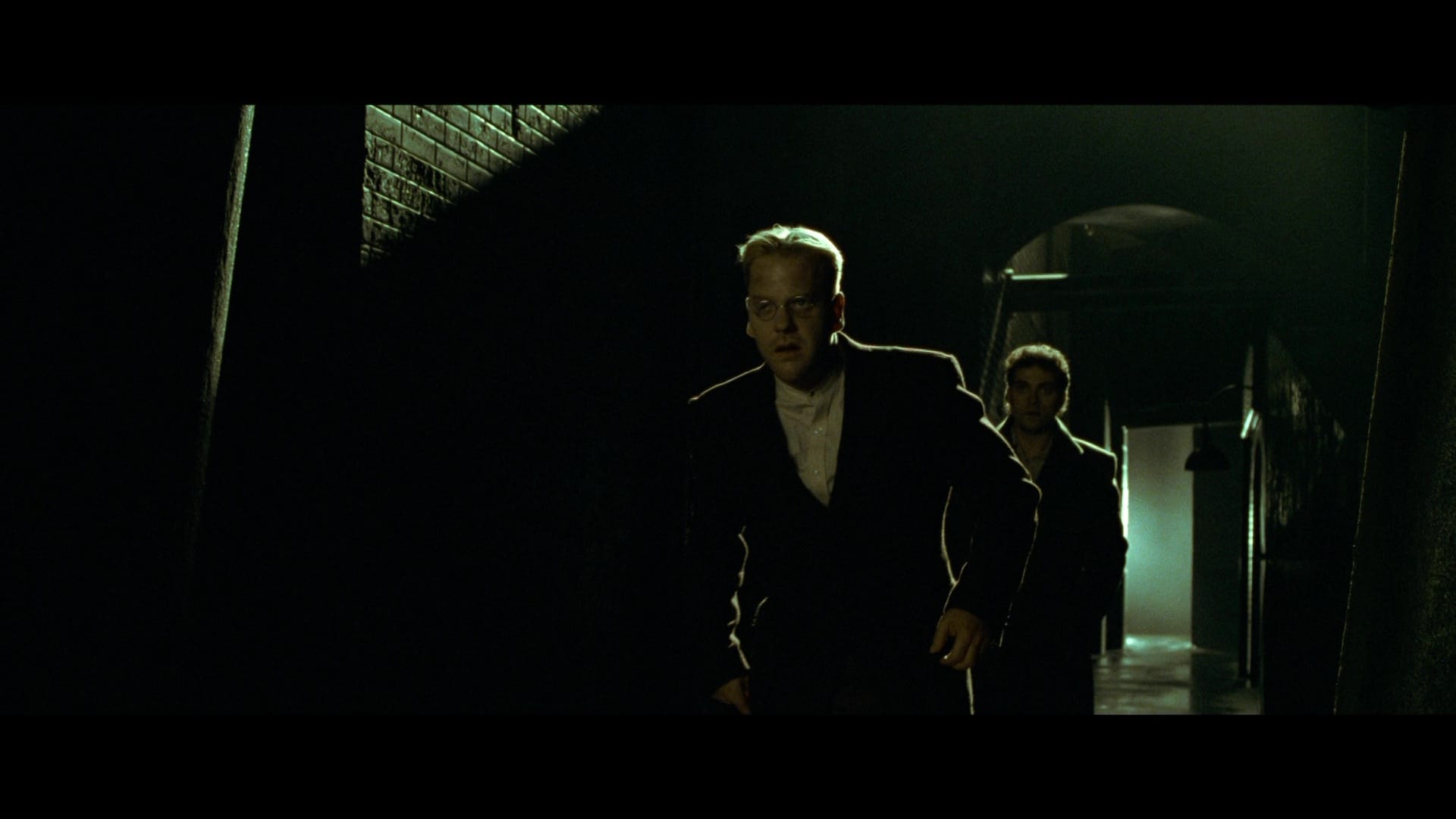
What I can’t argue against, though, is the result of Arrow’s restoration efforts. Restored in 4K and remixed in Dolby Atmos, and approved by Wolski, both versions of Dark City look absolutely incredible here, given new HDR10 and Dolby Vision grades that warm up the image just slightly in comparison to previous presentations, the better to distinguish the human characters from the ashen overlords known as the Strangers – and to allow other elements to be visible amidst the overall gunmetal-blue cast of the nighttime scenes.
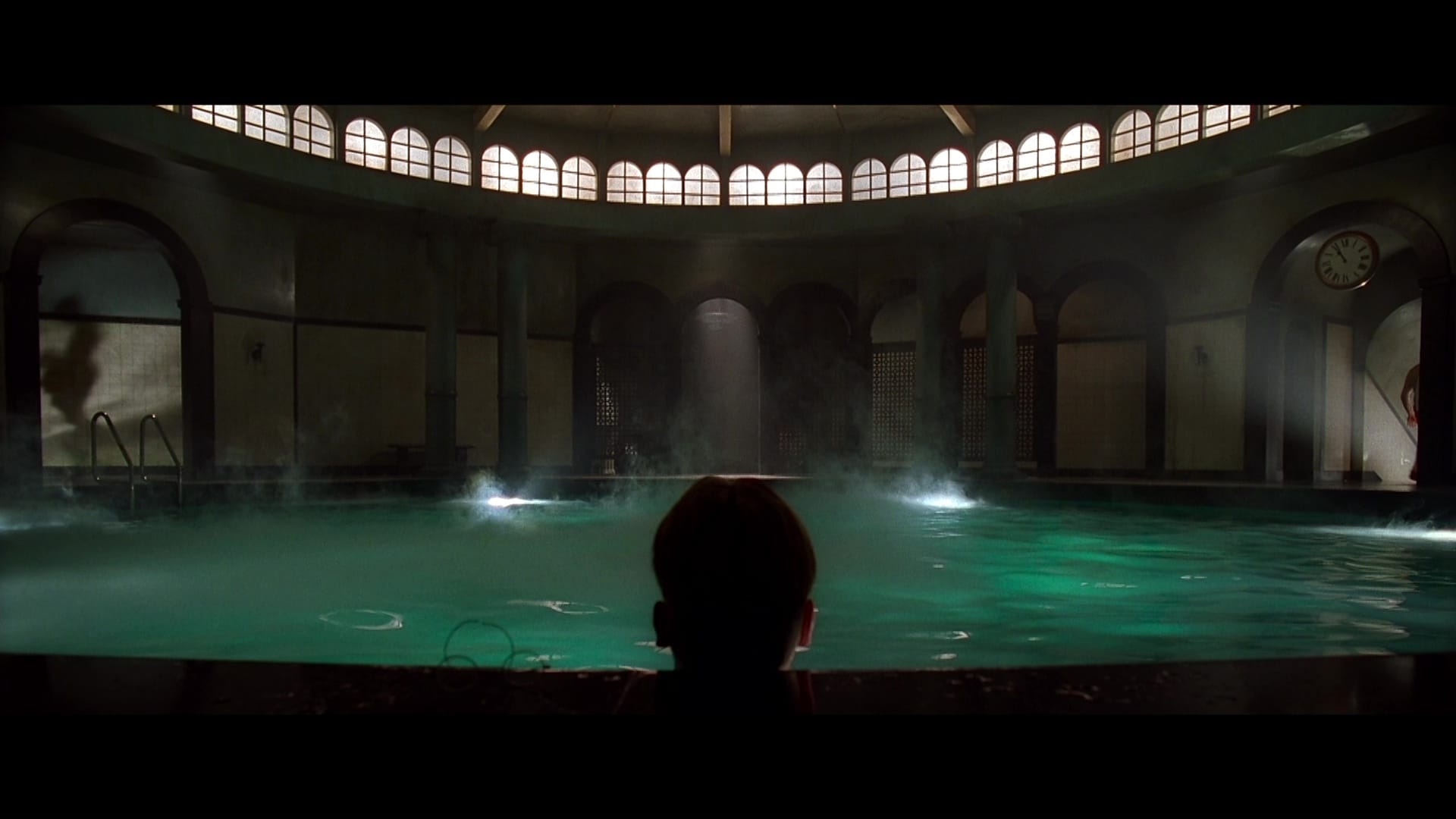
And while some of the digital work does show its age, most of the production was shot practically, with sets and costumes that are obsessively designed and detailed. They went all in on this movie, and it deserves to look this good. It looks so good, in fact, that it finally feels like those Matrix comparisons might have some merit after all.
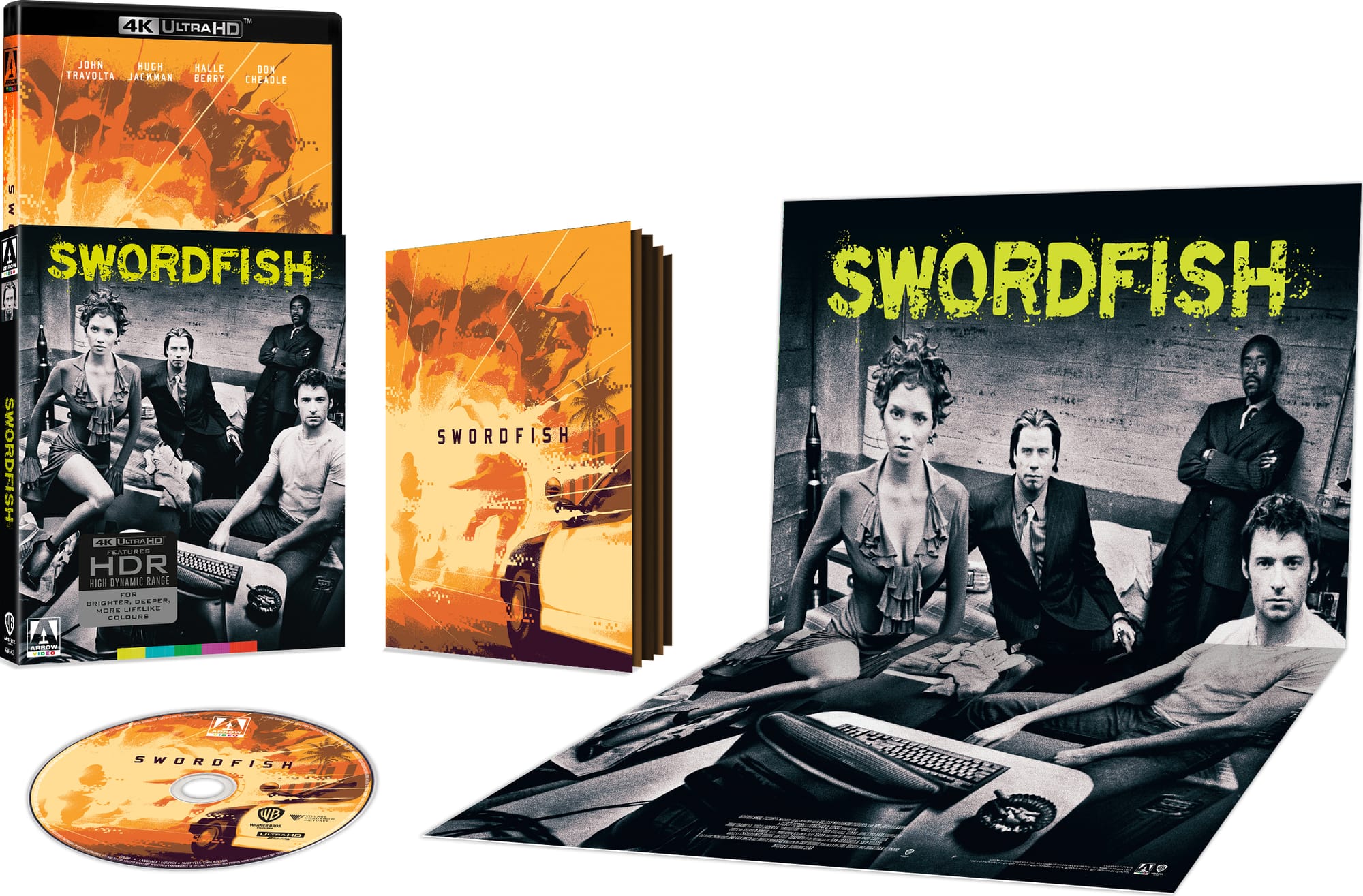
Swordfish, on the other hand? That movie wouldn’t exist without The Matrix. From the bullet-time effects to the digitally intense color palette, Dominic Sena’s 2001 summer action throwaway owes its entire edgelord sensibility to the Wachowskis’ era-defining blockbuster – even as it demonstrates it doesn’t understand a single goddamn thing about how it did what it did. It’s all about titillation and carnage, cool cars and scrolling computer displays, and a good-hearted hacker lured into a much larger world by a hot lady and a guy who likes to give speeches. Also there’s the whole 9/11 thing, but I’ll get to that.
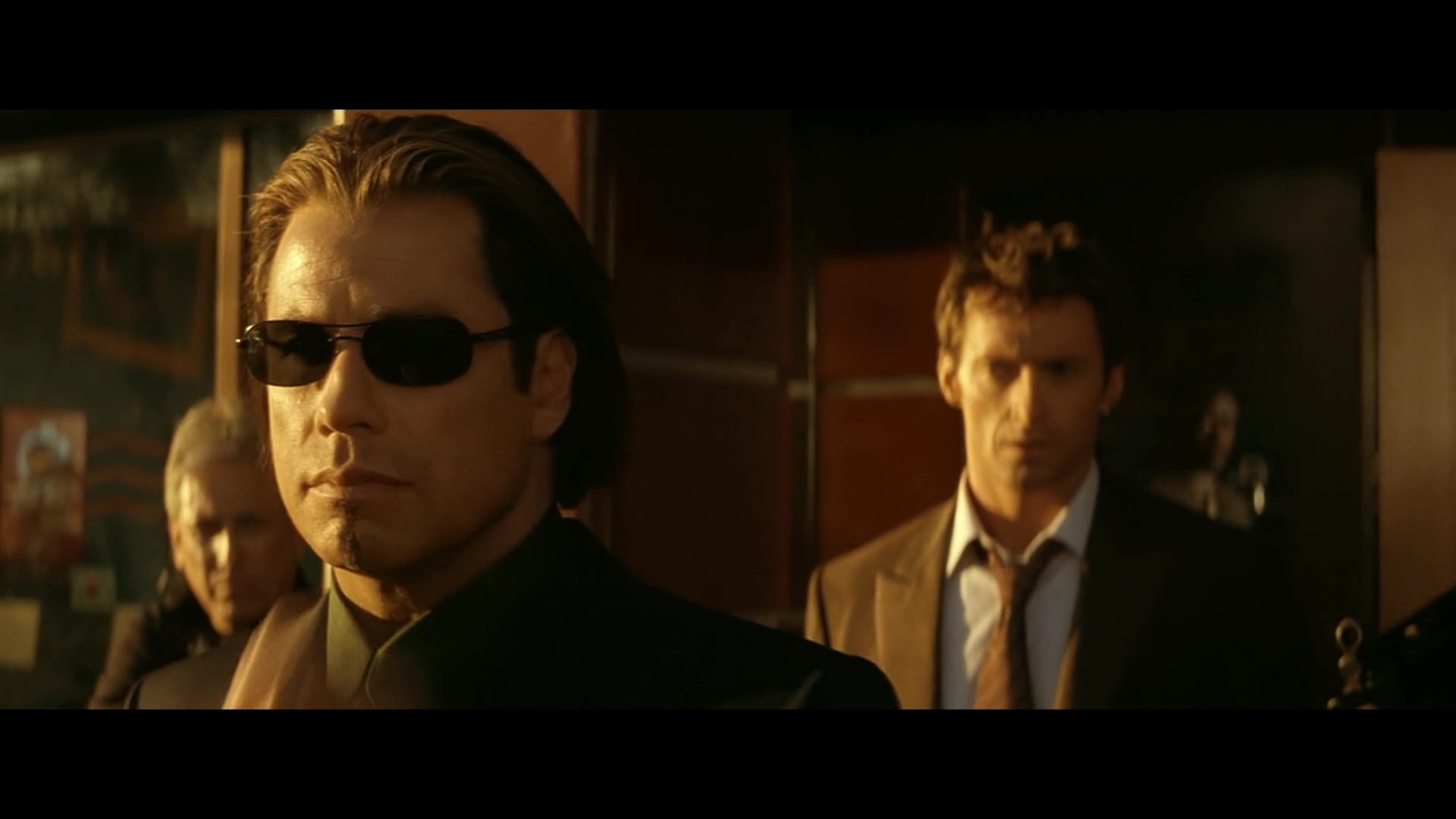
So: Hugh Jackman plays Stanley Jobson, a genius coder who’s been banned from Doing Computer thanks to some white-hat hacking but would really like to get his daughter back from her skeezy mother. Stanley is offered the chance by the aforementioned hot lady, Ginger Knowles (Halle Berry), who brings him to Los Angeles to meet the well-dressed but preposterously coiffed Gabriel Shear (John Travolta).
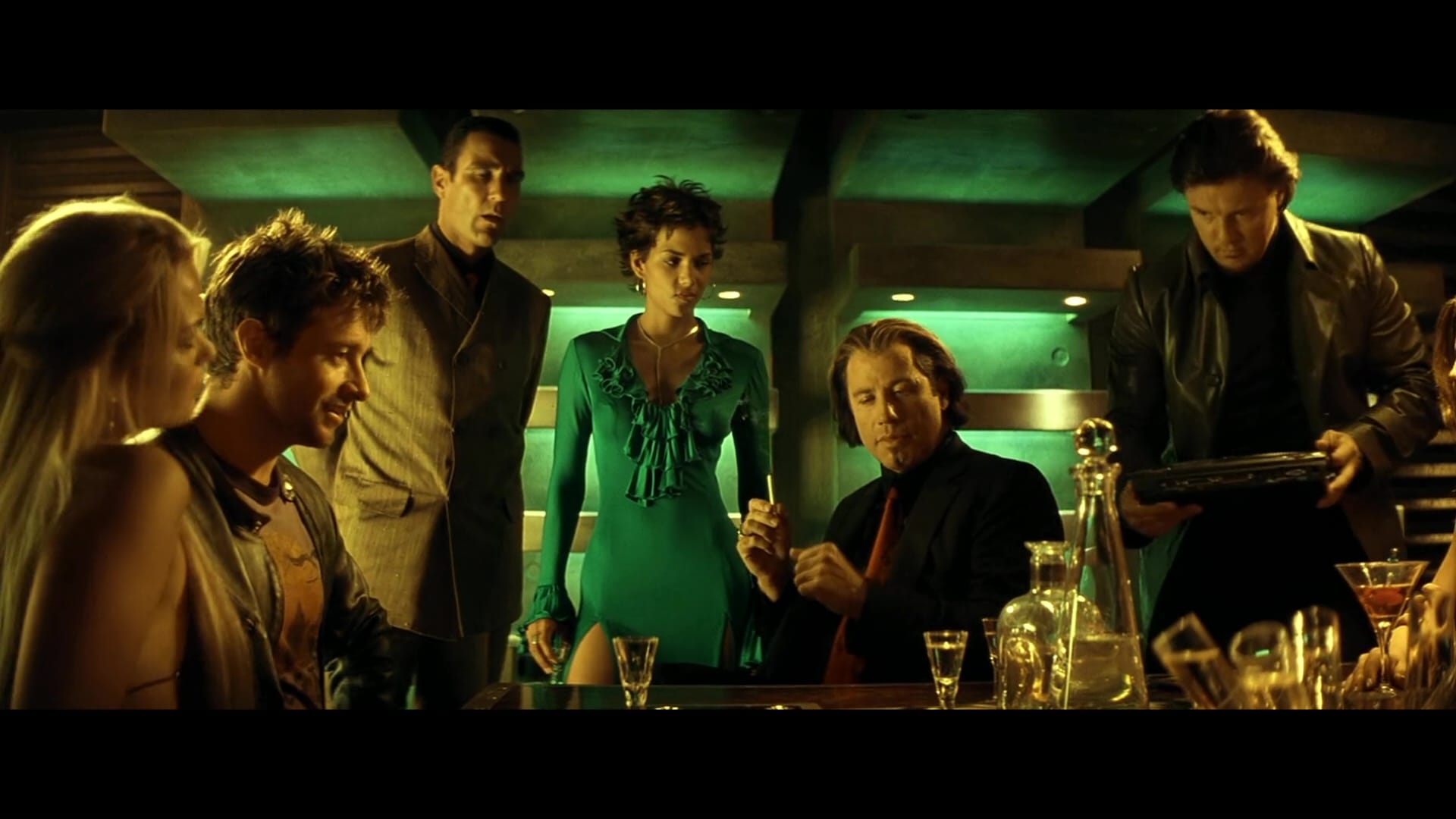
Shear wants Stanley to Do Computer as a means to steal billions of dollars that may or may not be the property of the US government – represented here by Senator Sam Shepard and FBI Guy Don Cheadle – but it turns out there’s more to the job than just a hack, and Stanley quickly finds himself dragged into a violent bank robbery with dozens of lives at risk. And, as we see in the in media res opening, Shear is more than willing to sacrifice any number of those lives if it gets him closer to the thing he wants.
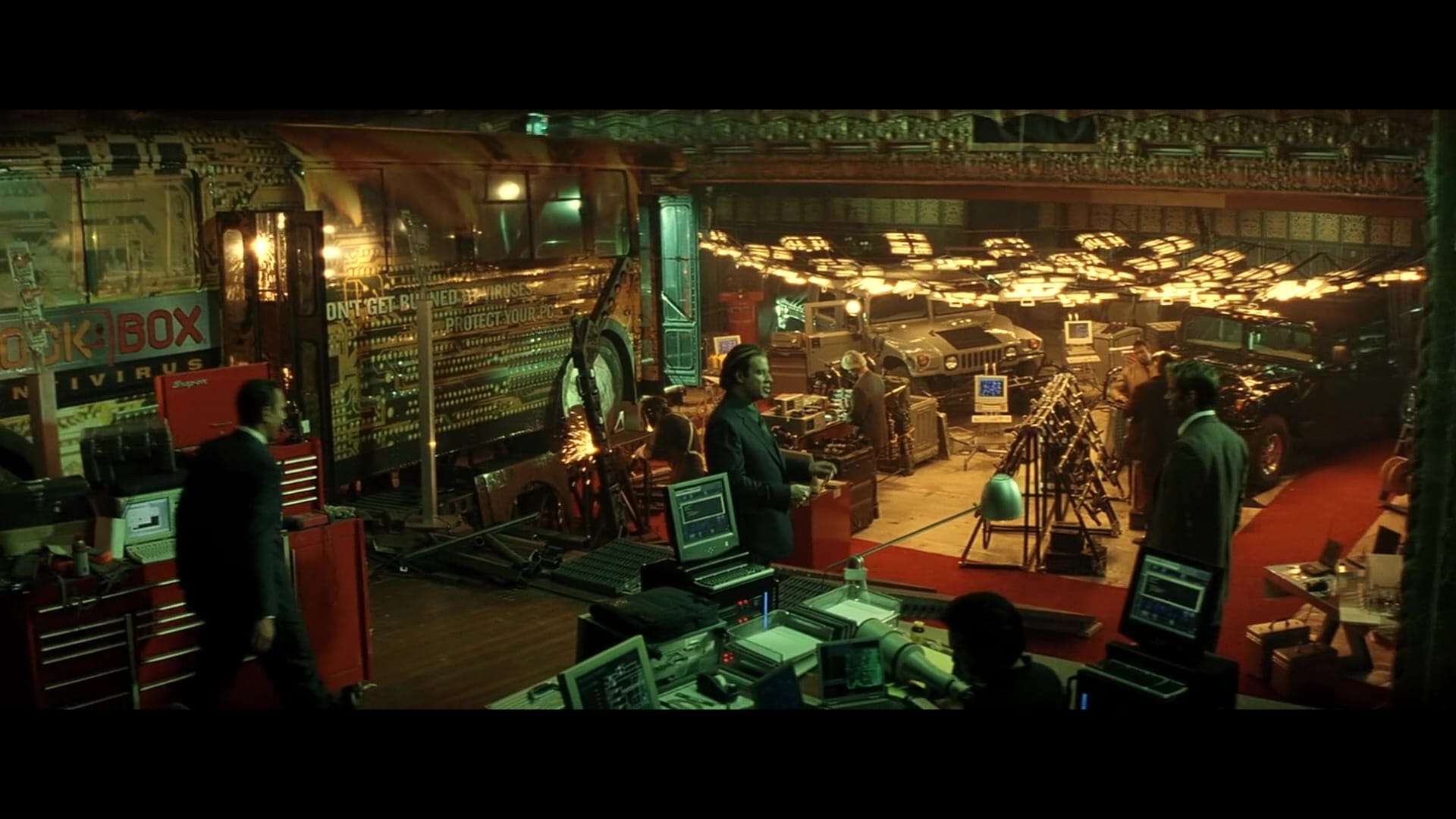
In addition to The Matrix, Swordfish also owes a large debt to mid-’90s titles like Pulp Fiction, Speed and The Usual Suspects, which should give you a sense of when Skip Woods wrote the initial drafts of his screenplay. Travolta’s Shear is constantly monologuing about cops-and-robbers pictures like The Sugarland Express and Dog Day Afternoon, which ought to lend a self-reflexive patina to the whole affair, but the movie’s just too coked-up to strike that pose; as with Sena’s other work, Kalifornia and the Gone in 60 Seconds remake, it’s polished and watchable but utterly empty, a sugar rush in search of a point.
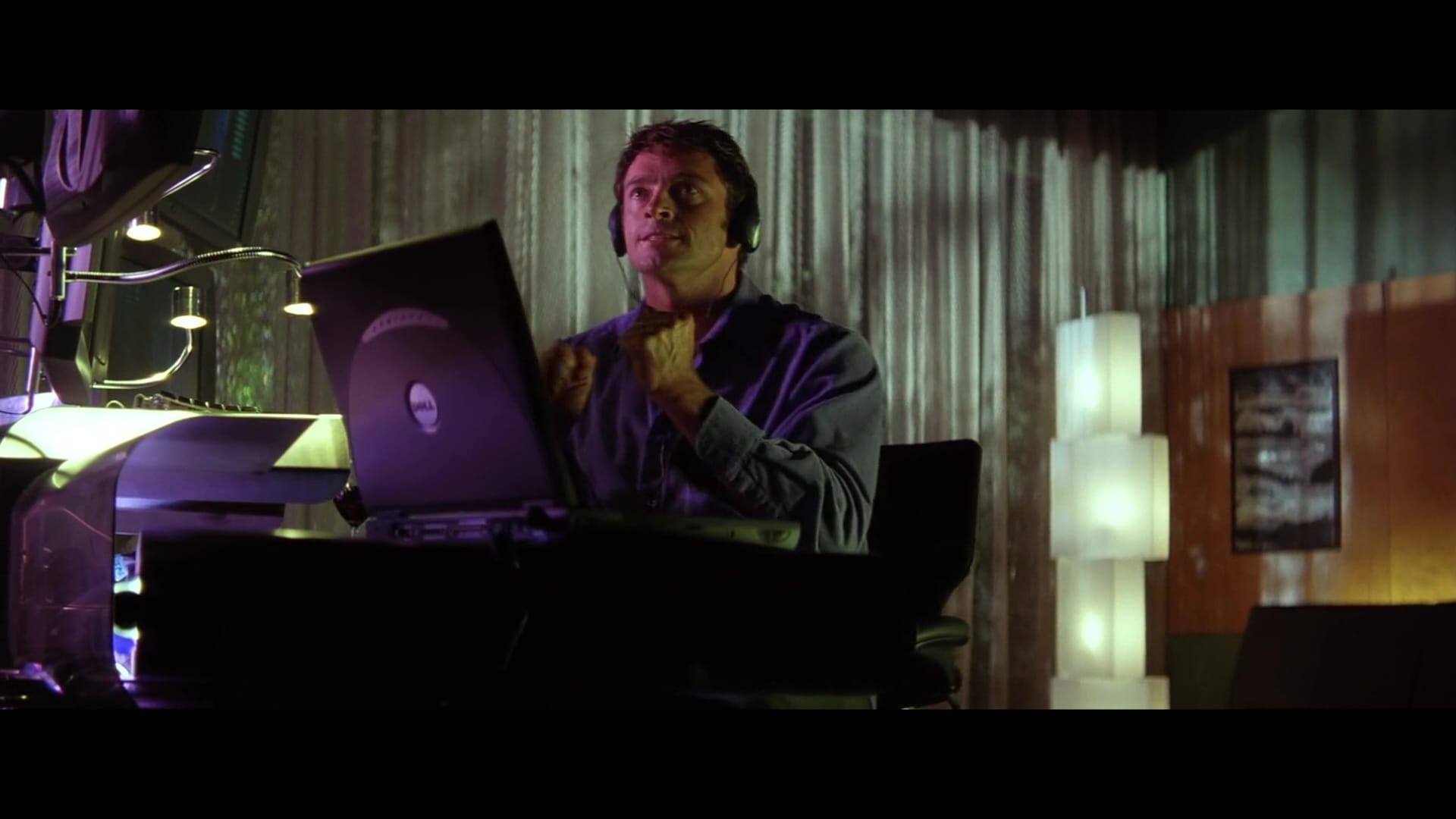
What Swordfish does offer is hard-R violence and nudity – Halle Berry’s topless scene was front-page news at the time – delivered at maximum volume through a never-ending haze of gels and filters. Everybody’s yelling at Stanley all the time, he’s usually just about to be punched in the gut or chased across a beach, all the guy wants is his kid back but everybody wants him to Do Computer. I’ll give Woods, Sena and producer Joel Silver credit for keeping the movie moving – it packs more into its 99 minutes than most Lethal Weapon pictures could handle in two hours – and all the actors are doing their best to keep pace with it.
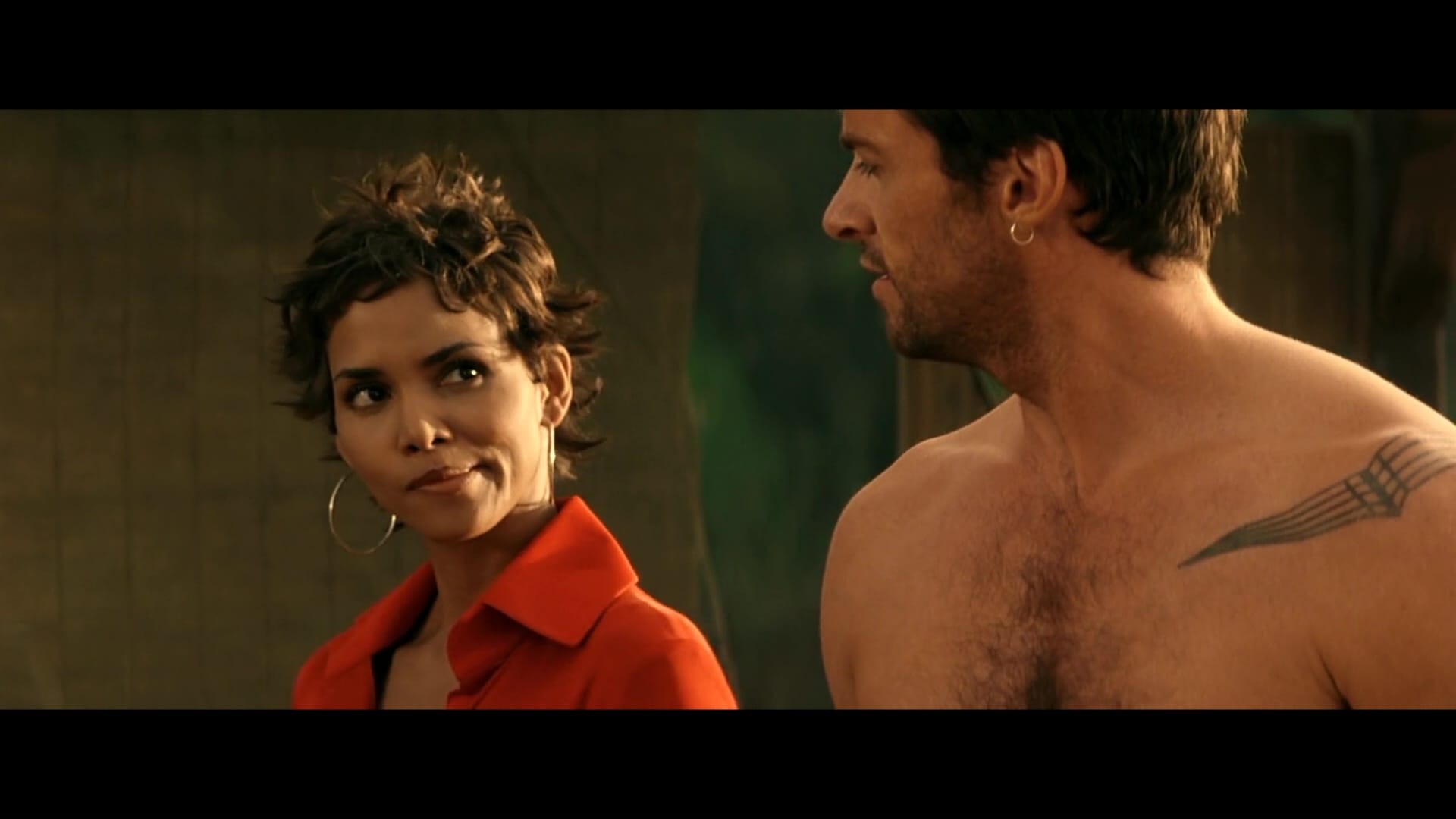
Jackman and Berry share a nice rapport, presumably forged while working together on the original X-Men, and Travolta was still riding the personal high of having finally made the Battlefield Earth movie and not bothering to read any of the reviews.
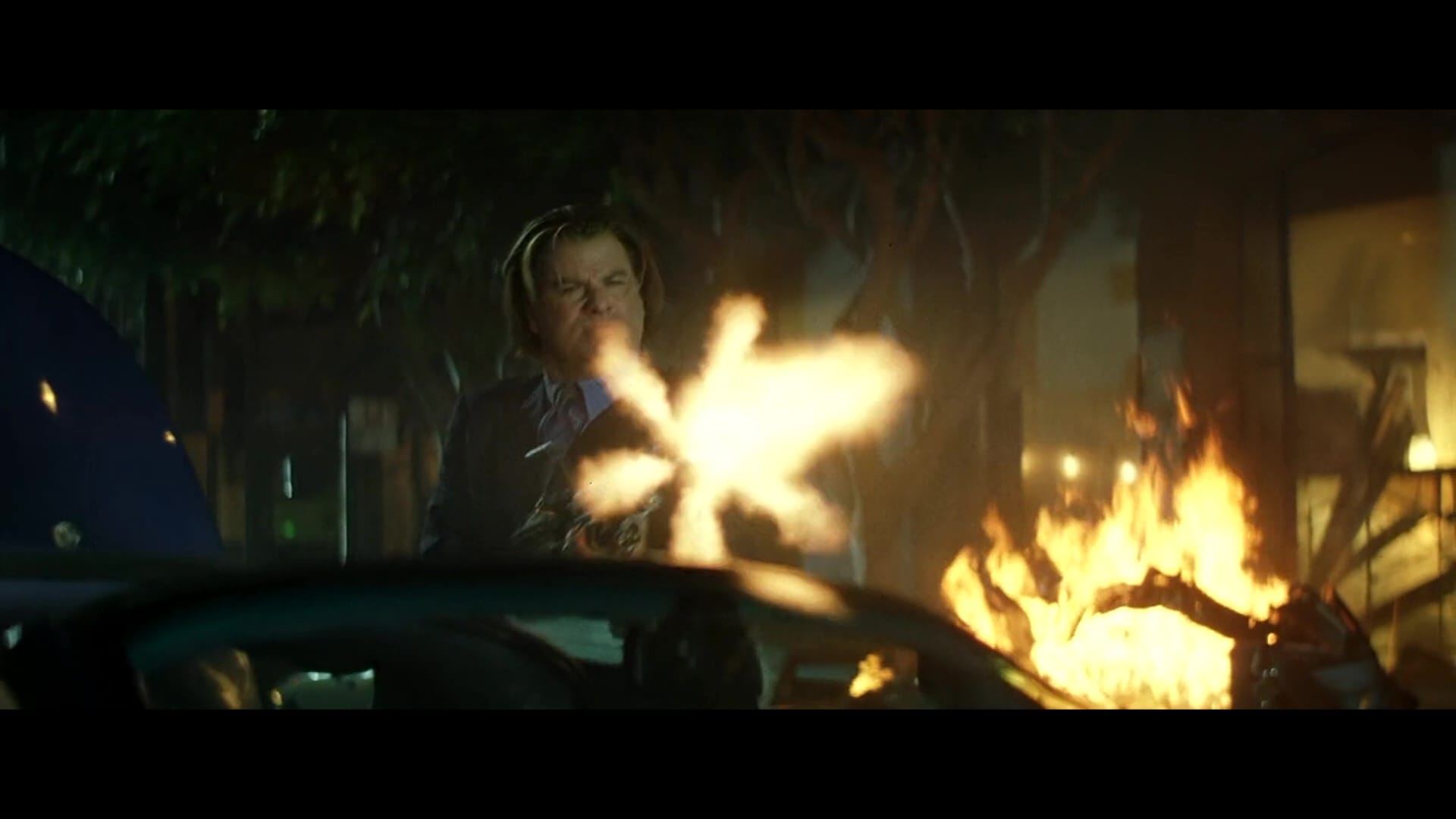
It's all dumb as dirt, but it’s pretty lively… or at least it was, until 9/11 briefly revealed the ugliness at the heart of exactly this sort of action movie, which suggests Shear is a rogue spook out to stage a false-flag operation to cover his tracks while leaving the government holding the bag. I did mention The Usual Suspects was a clear influence, right? Except that Keyser Soze was the devil, not Osama Bin Laden. It lands differently with that in mind.
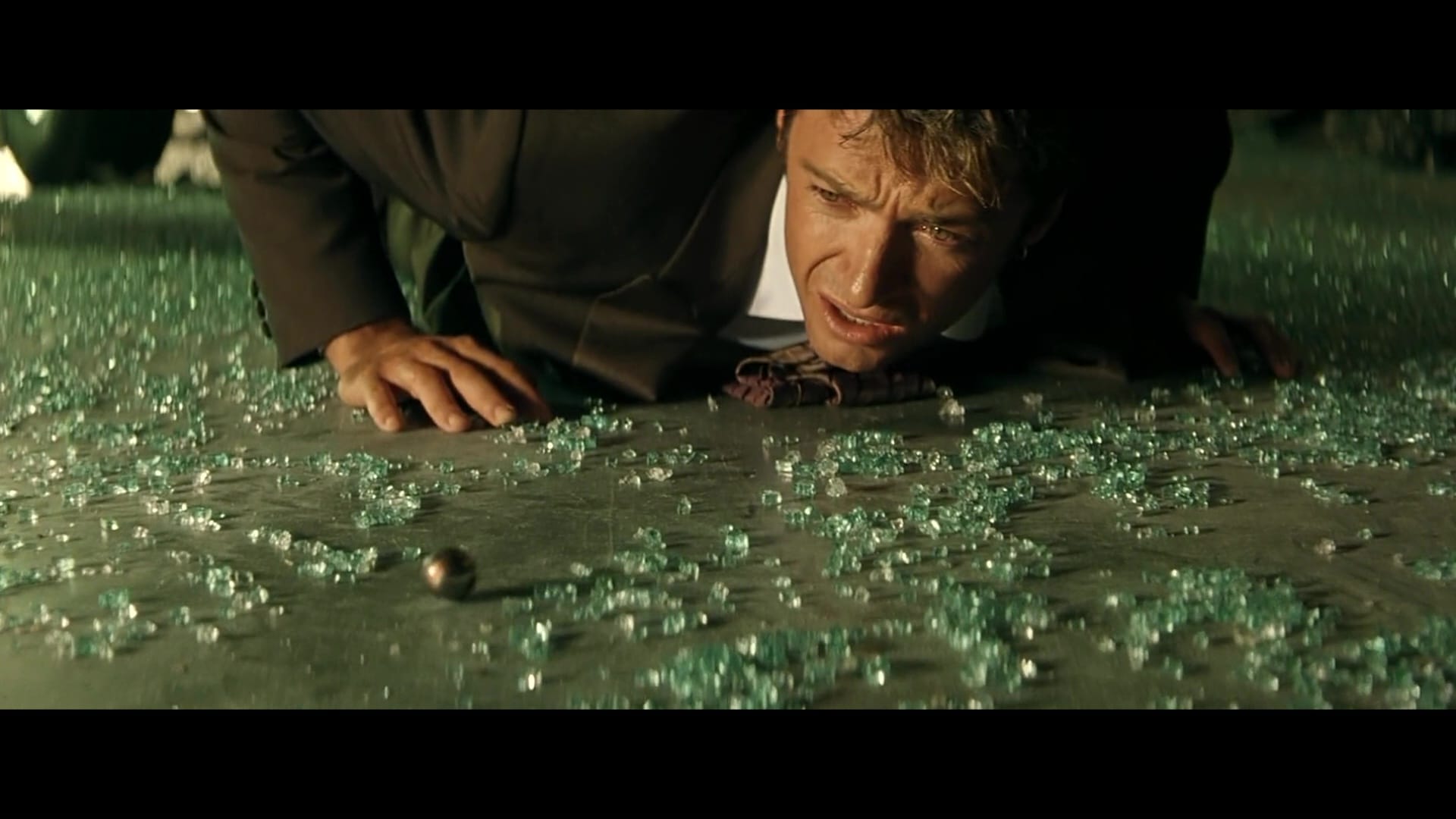
Arrow’s 4K disc gives Swordfish the restoration it deserves, which is to say that it is absolutely faithful to the film’s bombastic look and feel, with HDR and Dolby Vision grades take its color temperatures to a level of hyper-realism that earlier Blu-ray couldn’t reach. There’s no Atmos remix on this one, but hoo boy does the 5.1 DTS-HD soundtrack go hard.
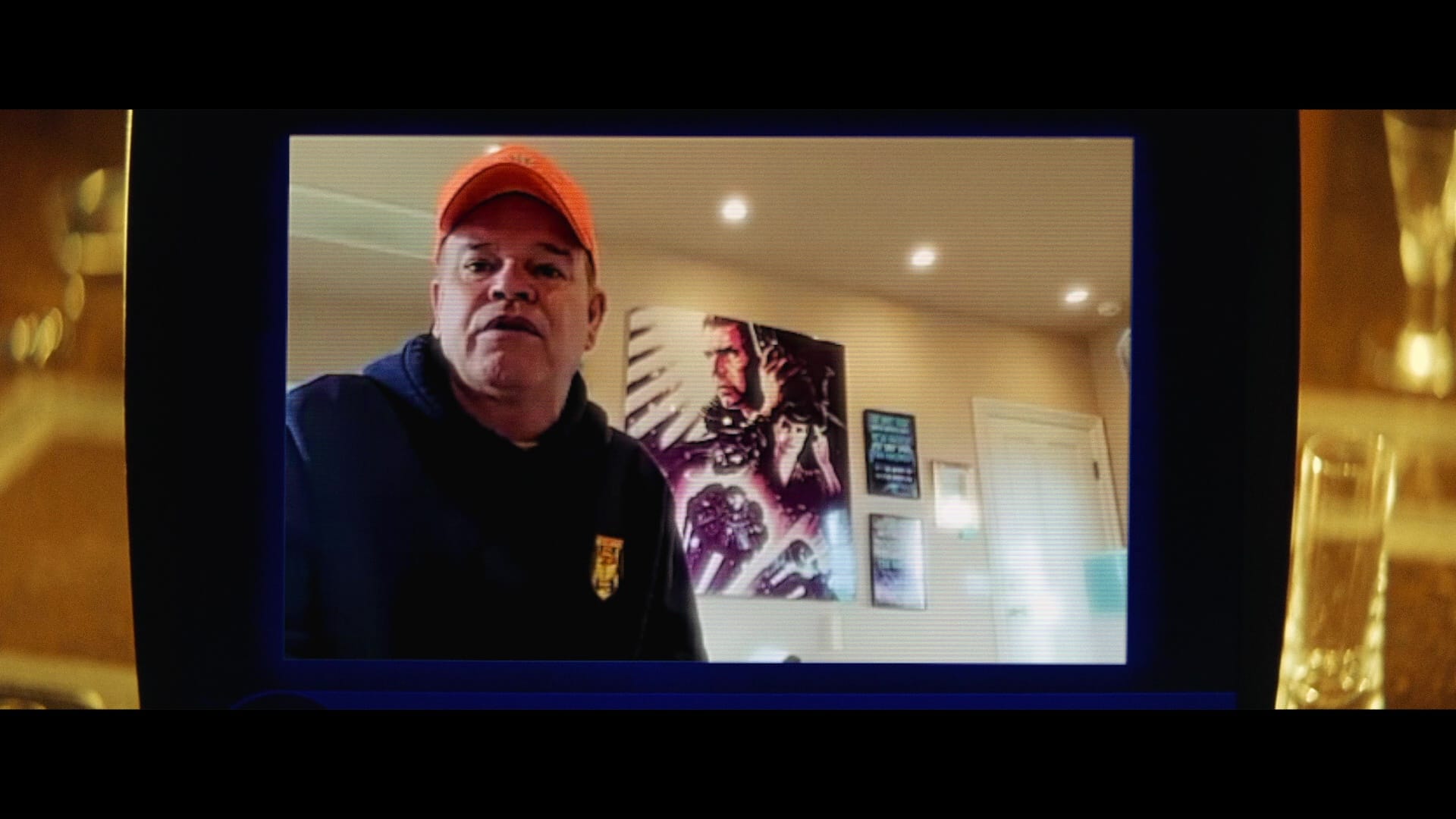
The suite of special features from Warner’s initial DVD release (and that subsequent BD) are all here, as is Sena’s audio commentary, but Arrow has also commissioned new interviews with production designer Jeff Mann (“How to Design a Tech Heist”) and composer Paul Oakenfold (“Soundtrack Hacker”), each presented through a computer-like filter that’s more self-consciously clever than anything in the film itself. That, at least, is cool.
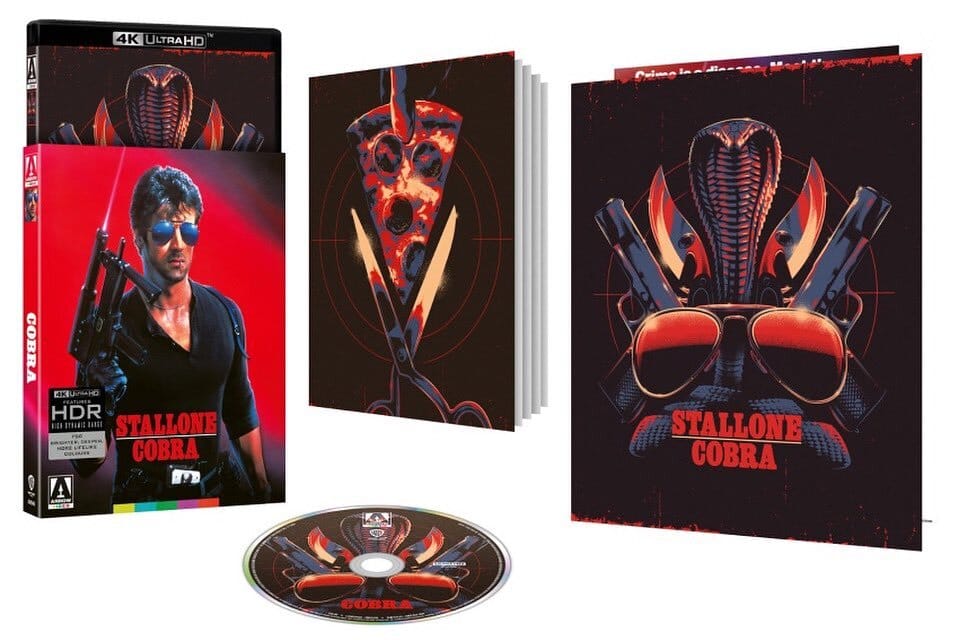
You want to watch a bloodthirsty action movie without any such complications? Arrow’s got you covered there too, with a brand-new 4K edition of Sylvester Stallone and George P. Cosmatos’ 1986 extravaganza Cobra.
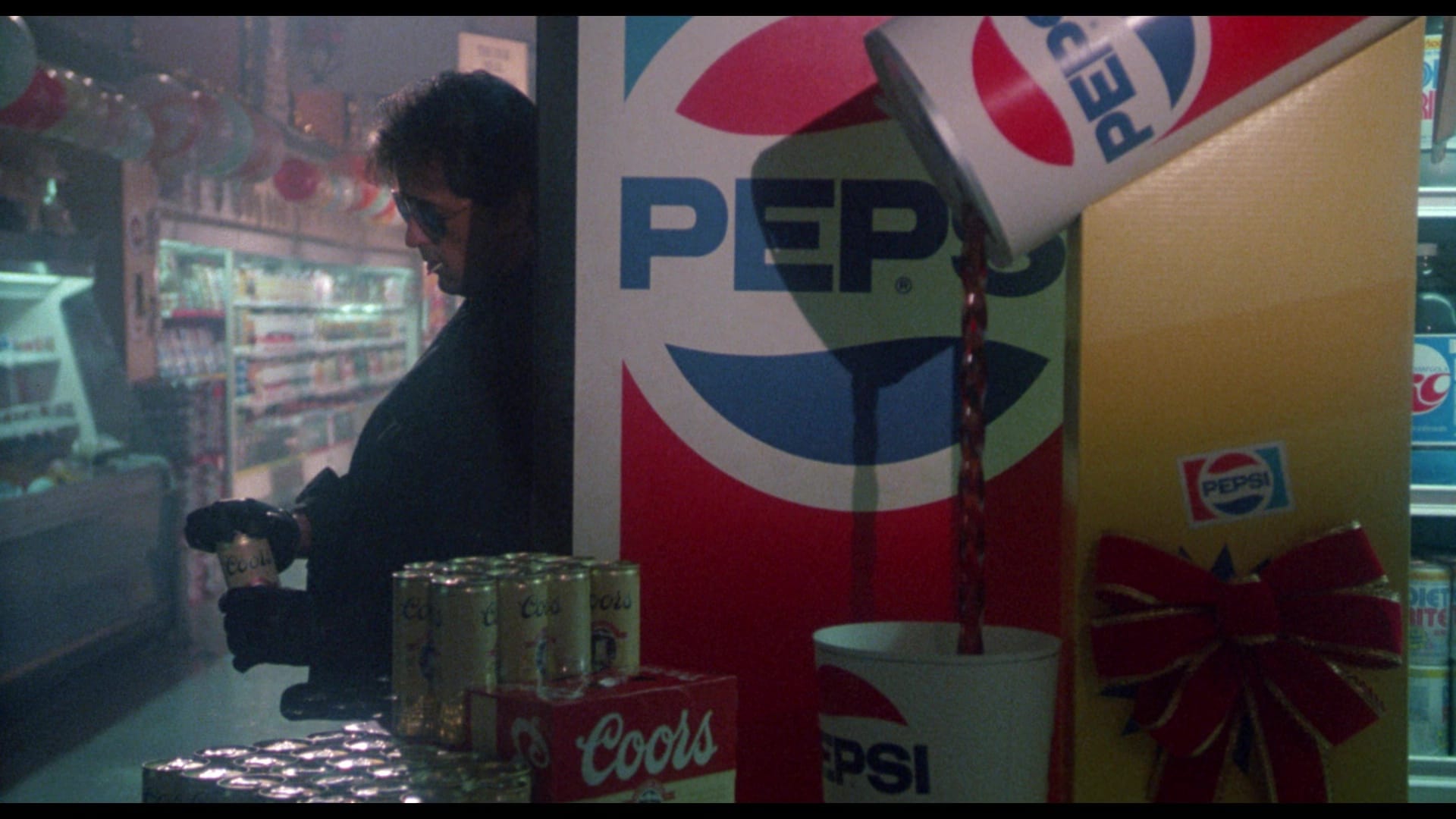
Have you seen Cobra recently? It’s certifiably insane. The story goes that Stallone had been developing another cop thriller after Nighthawks was one of his few non-Rocky hits in the early ’80s; that project eventually became Beverly Hills Cop. Still wanting to shoot bad guys, Stallone went to his pals at the Cannon Group, and turned an adaptation of Paula Gosling’s novel Fair Game into a glossy, preposterous vehicle in which he stomps around Los Angeles keeping grumpy model Brigitte Nielsen out of the clutches of a death cult led by Brian Thompson.
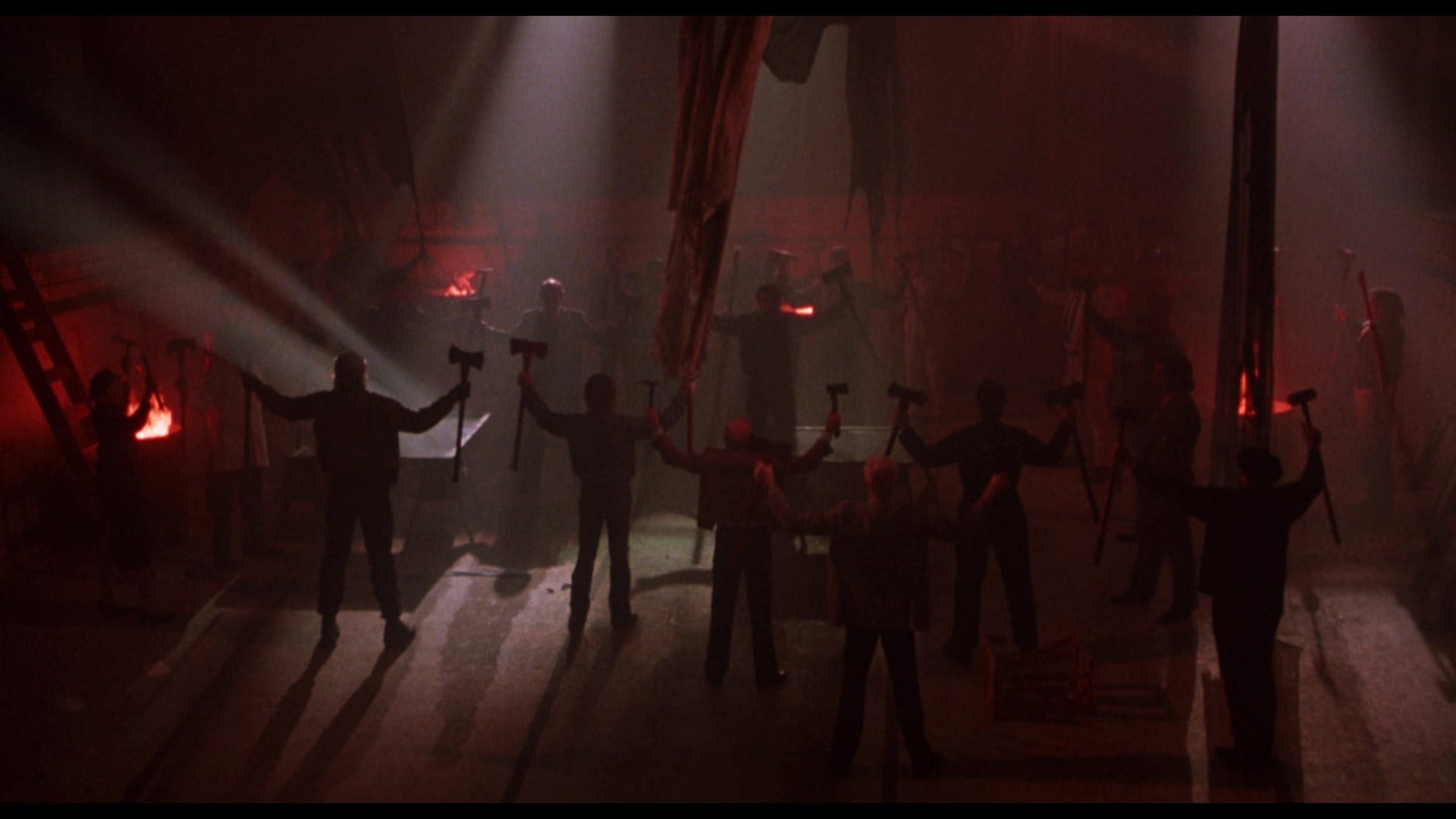
If this scenario sounds slightly familiar, that’s because Gosling’s novel was also adapted into Fair Game, with William Baldwin as the cop and Cindy Crawford as the model. The death cult thing was Stallone’s idea, which should give you a sense of why his Beverly Hills Cop pitch was maybe not what Paramount was looking for. Anyway, this is the dumbest possible version of either project.
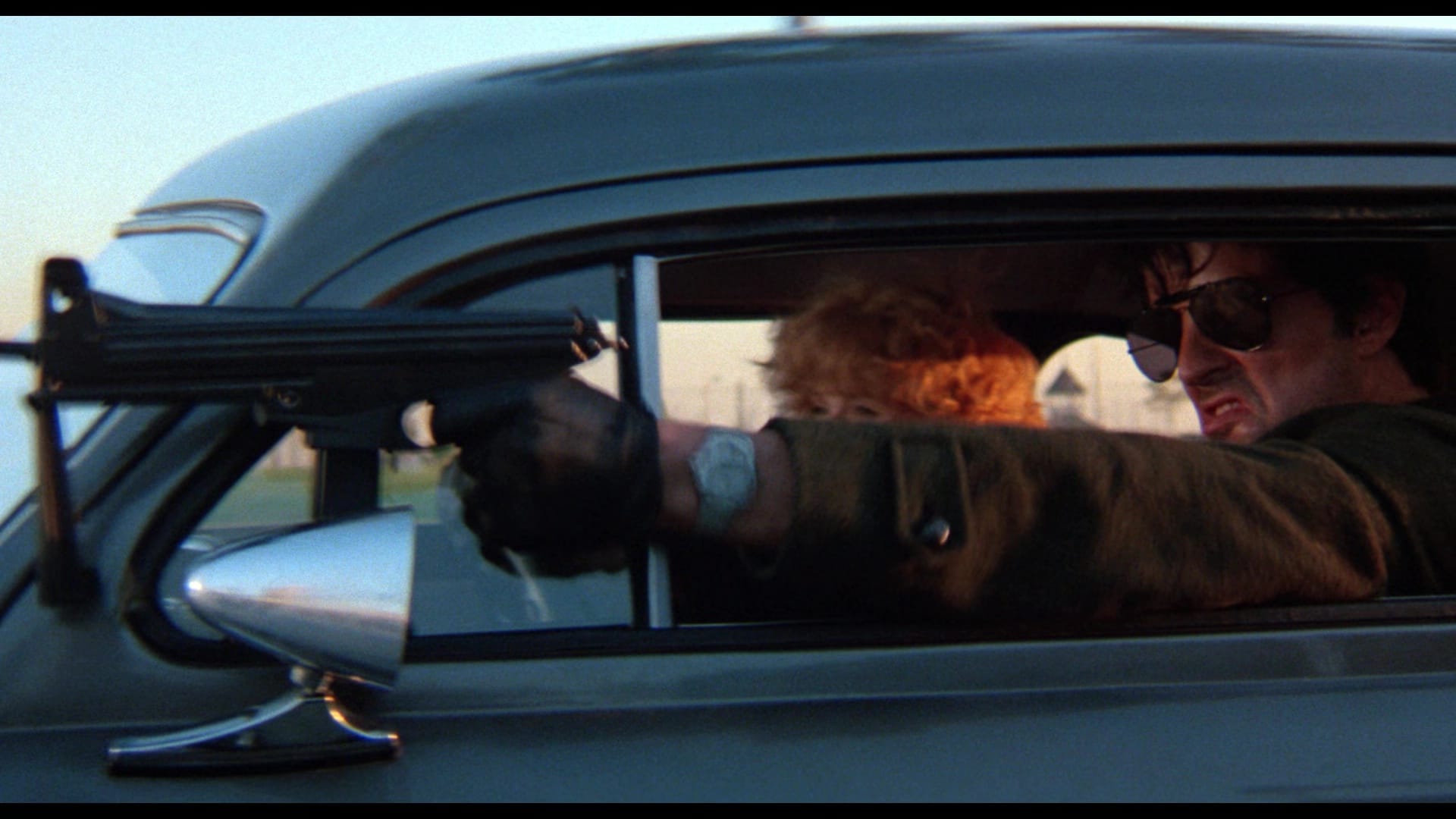
I was unaware Cobra had received a special-edition Blu-ray in 2019 – under Shout! Studios’ horror-centric Scream Factory imprint, no less – but the interviews with co-stars Brian Thompson, Marco Rodriguez, Andrew Robinson, Lee Garlington and Art Lafleur produced for that disc are all present here, along with the audio commentary and original production featurette that first appeared on Warner’s 1998 DVD.
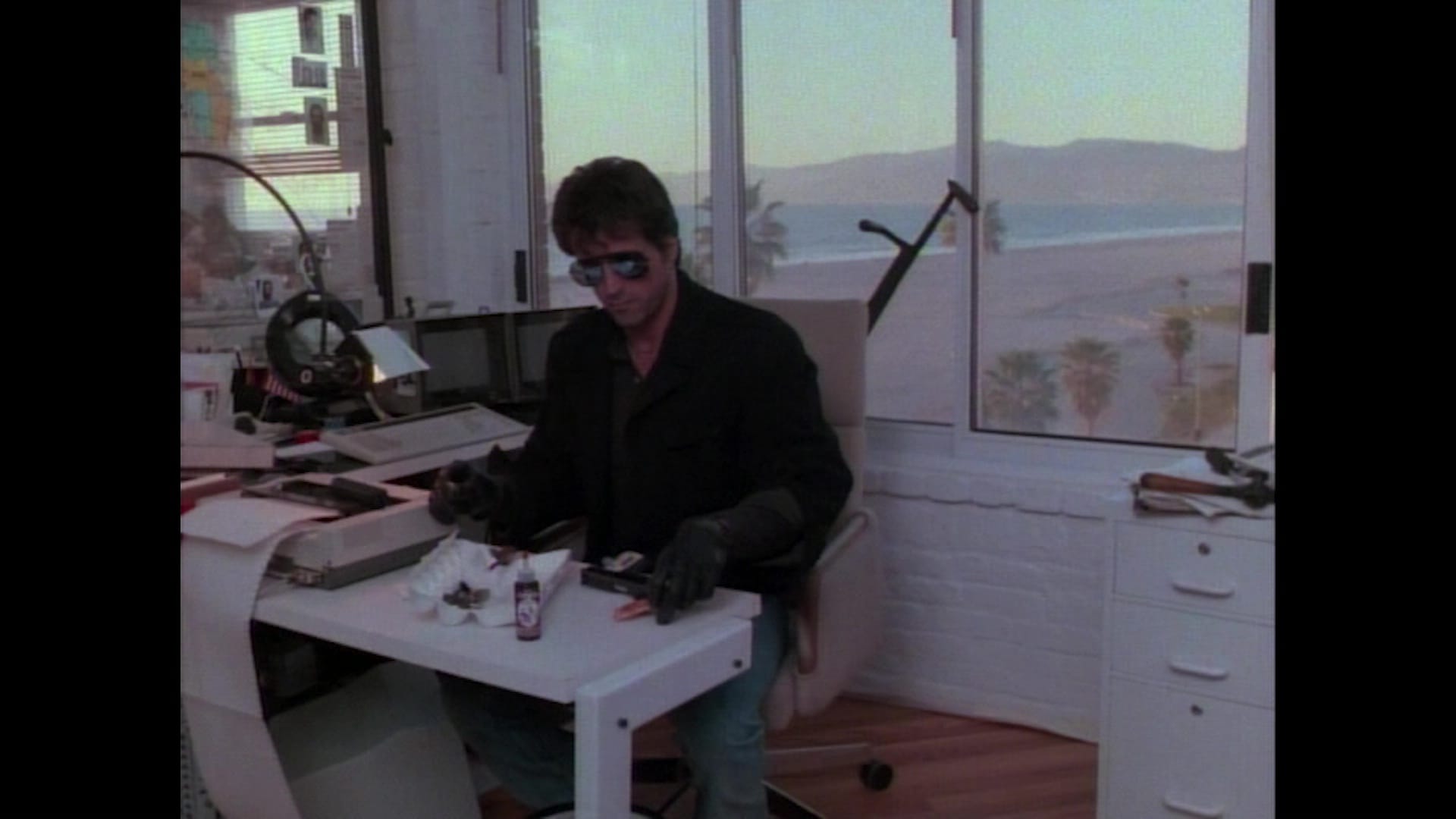
Brand new to home video – but familiar to a generation that grew up watching this movie on cable in the ’90s – is the TV version of Cobra, which replaces the R-rated sex, language and violence with alternate takes and deleted scenes, offering a super-swaggery but PG-friendly version of a decidedly R-rated picture. (Please note I said “R-rated” rather than “adult,” because the latter would be a total misrepresentation.)
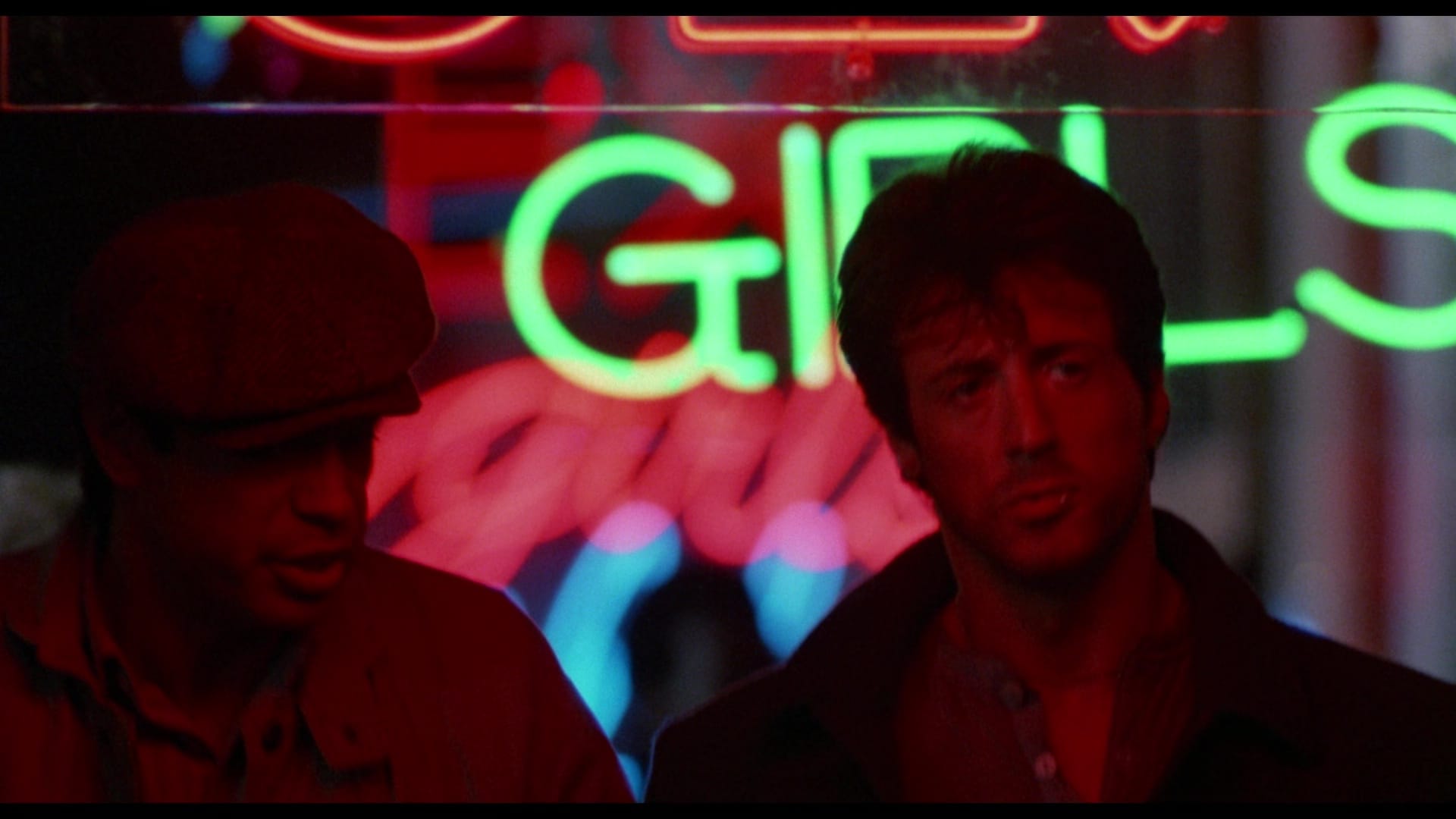
In addition to a new 4K restoration of the film – all shiny and chrome with the original 2.0 and 4.0 theatrical soundtracks and a DTS-HD 5.1 remix – Arrow has commissioned a whack of new extras. We start with two new critical commentaries: One from Kim Newman and Nick de Semlyen, the other from Josh Nelson and Martyn Pedler.
There’s a new interview with composer Sylvester Levay and two illuminating visual essays. Martyn Conterio’s “White Line Nightmare” looks at Cobra’s place in the maverick-cop genre, while Abbey Bender’s “Dark Glasses, Violence & Robots” unpacks the film as an example of ’80s maximalist cinema, which it very much is.
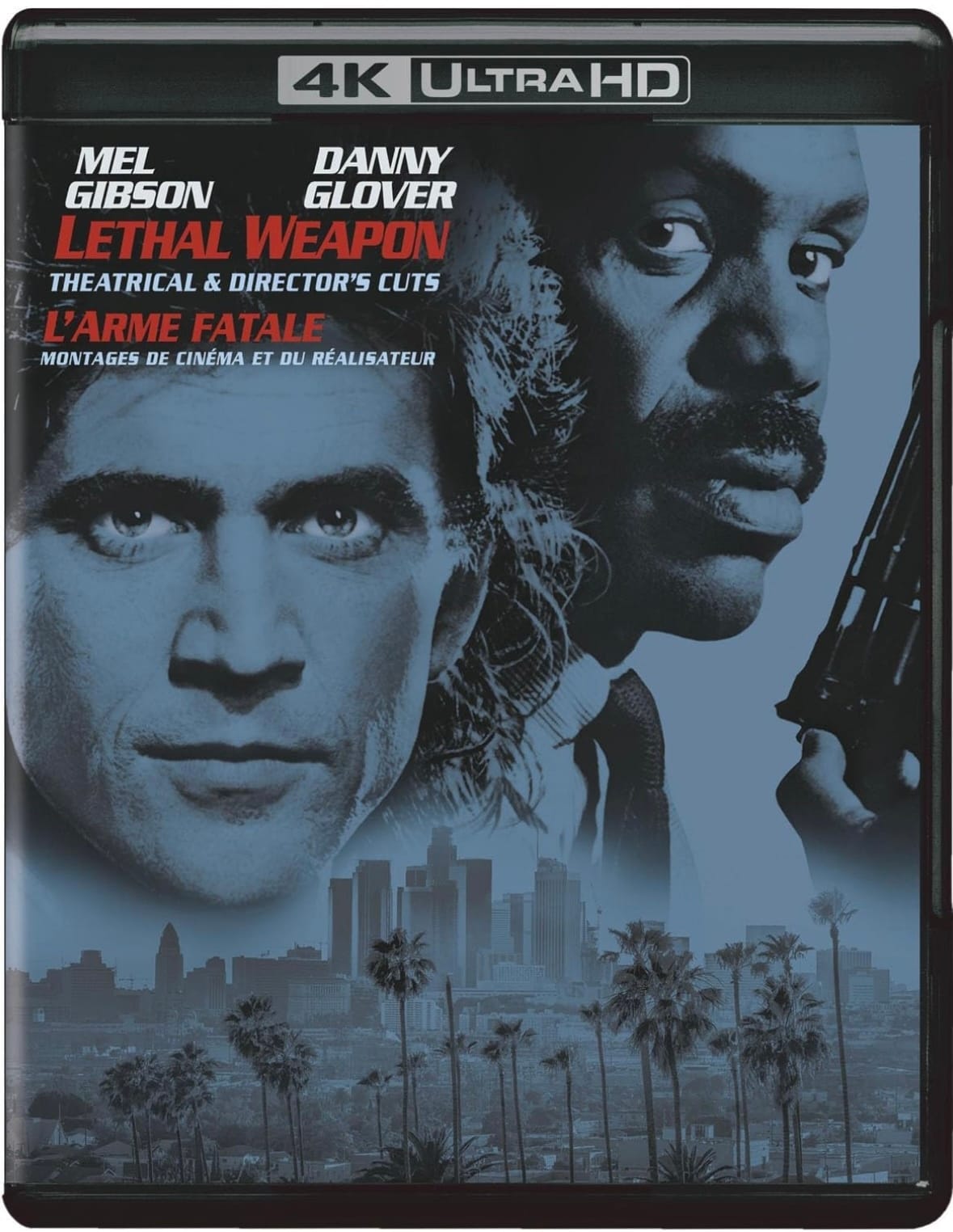
But as big and stupid and violent as Cobra may be, it can’t hold a candle to what Warner delivered the following spring with Lethal Weapon, in which Richard Donner picked up the baton Walter Hill threw down five years earlier in 48 HRS. There had been other buddy-cop pictures since Nick Nolte and Eddie Murphy defined the subgenre – most recently Running Scared, in which Peter Hyams briefly made Gregory Hines and Billy Crystal seem like credible action heroes – but Lethal Weapon had Mel Gibson and Danny Glover, and they had chemistry to burn.
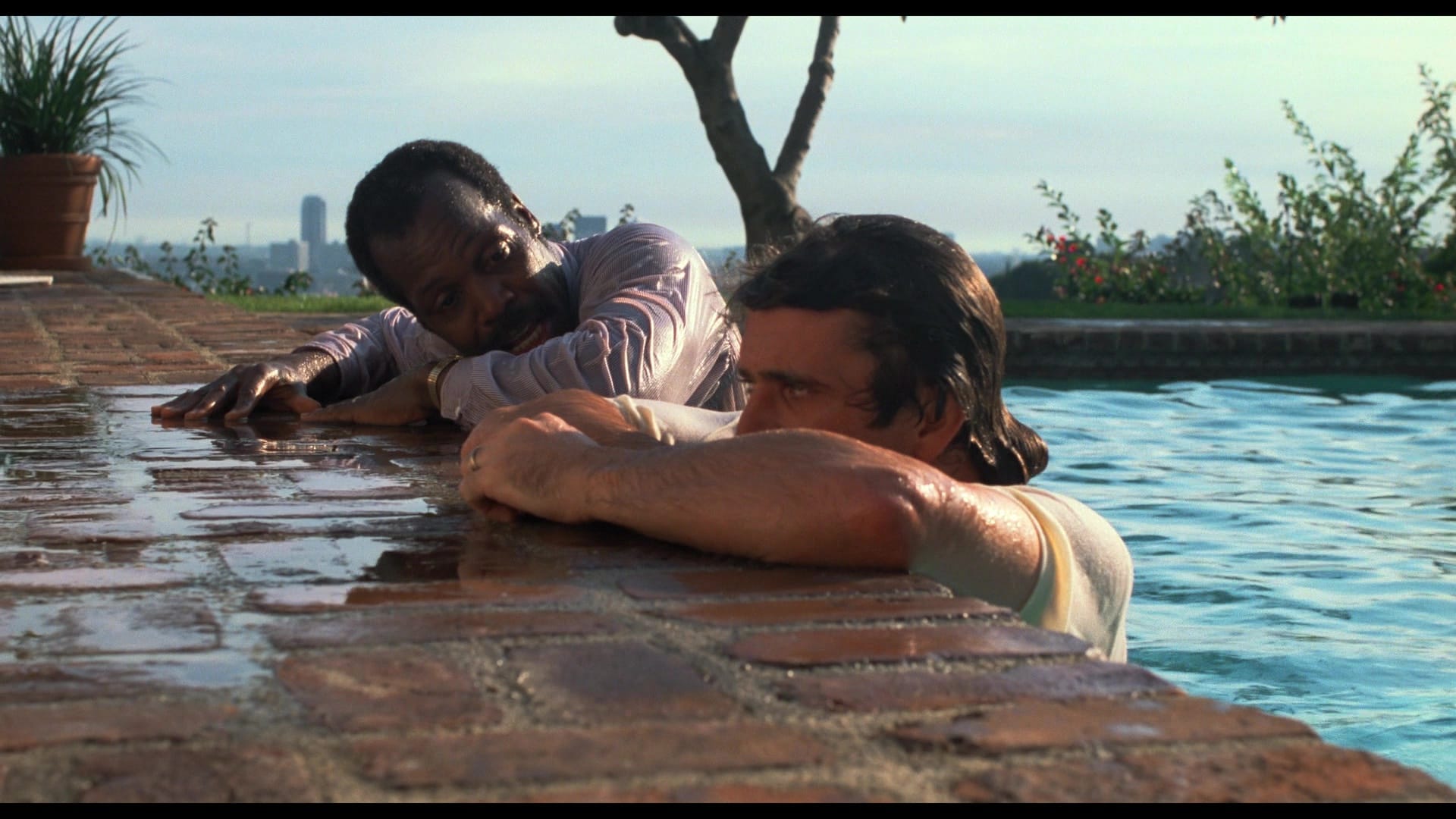
They also had a Shane Black screenplay that captured the coked-up cynicism of the Reagan era in full flower, with Gibson’s Riggs and Glover’s Murtaugh both Vietnam veterans representing opposing visions of authority: Murtaugh’s a law-and-order guy, a crack shot who shoots to disable rather than kill; the recently widowed Riggs, on the other hand, is a loose cannon with a compulsive need to escalate any situation in which he’s involved, possibly in the hopes of catching a bullet himself.
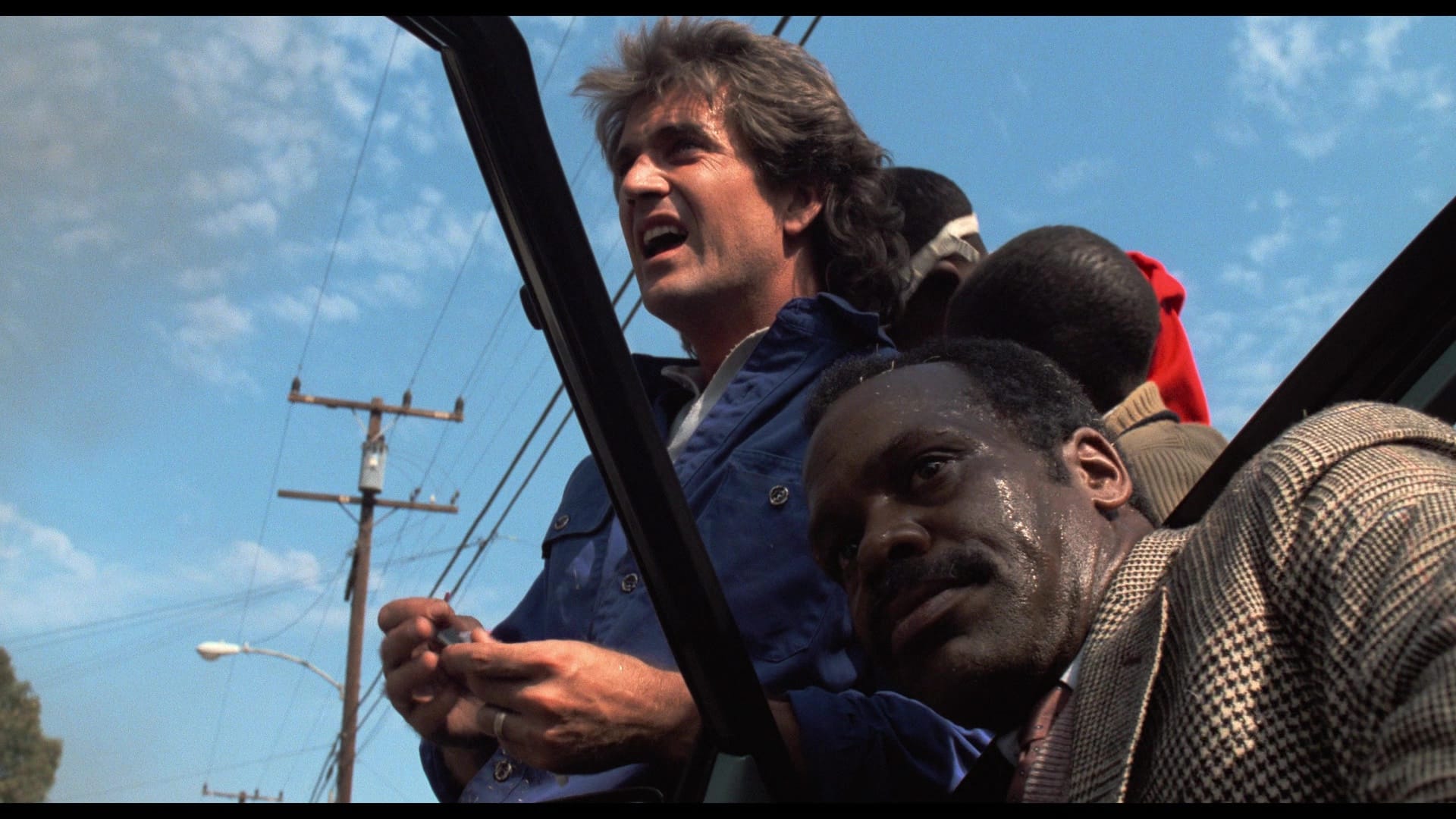
It's cartoonish, but that’s why it works: Donner saw how well Glover and Gibson played off one another, and realized the audience would be on board with anything and everything he could throw at them. And here I must stop to note that, as with revisiting The Bounty a while back, it is really, really difficult to watch Lethal Weapon without thinking of all the ways Mel Gibson has turned out to be a truly awful person. In this case it’s even more difficult to separate the artist from his art: Riggs throws a homophobic slur at Murtaugh as the latter pats him down after a house explosion and casts aspersions on the sexuality of the late Amanda Hunsacker while building a theory of her murder, and a scene that finds Riggs being electrocuted by Gary Busey’s psychotic Mr. Joshua demonstrates Gibson’s torture fetish was already in full flower. But god dammit, the guy was a movie star.
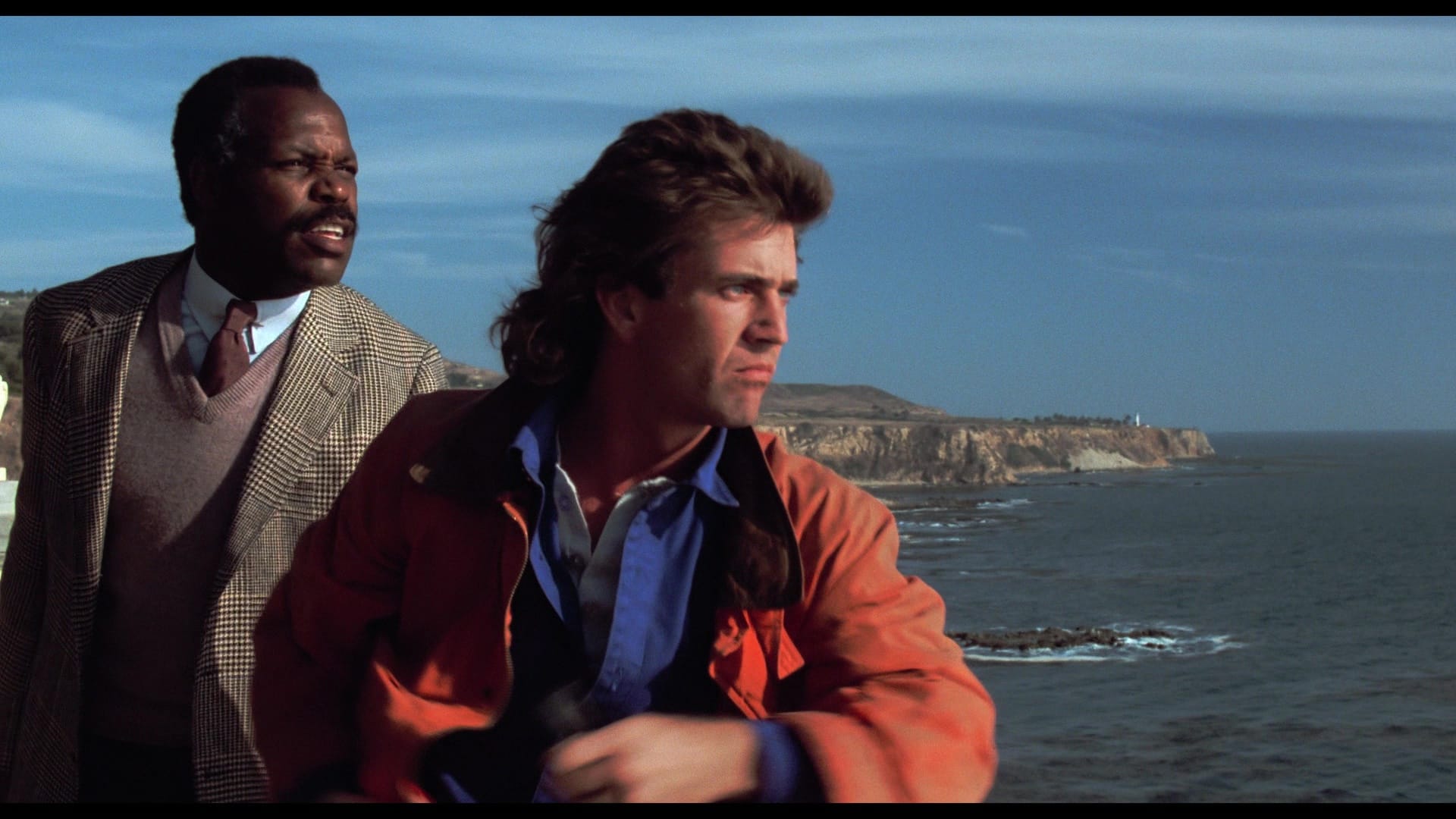
As you might expect, Gibson did not participate in Warner’s new retrospective featurettes for this 4K release, “A Legacy of Inspiration: Remembering Dick Donner” and “I’m Too Old for This …: A Chemistry That Became Iconic.” Glover is on hand, though – and looking great for a guy in his seventies – along with Black, associate producer Jennie Lew Tugend and co-stars Traci Wolfe and Jackie Swanson, who played Murtaugh’s eldest daughter Rianne and the doomed Amanda Hunsacker, respectively. The absent Gibson is represented in clips, stills and set footage, obviously, but at times it does feel that people are eulogizing the actor as much as his late director.
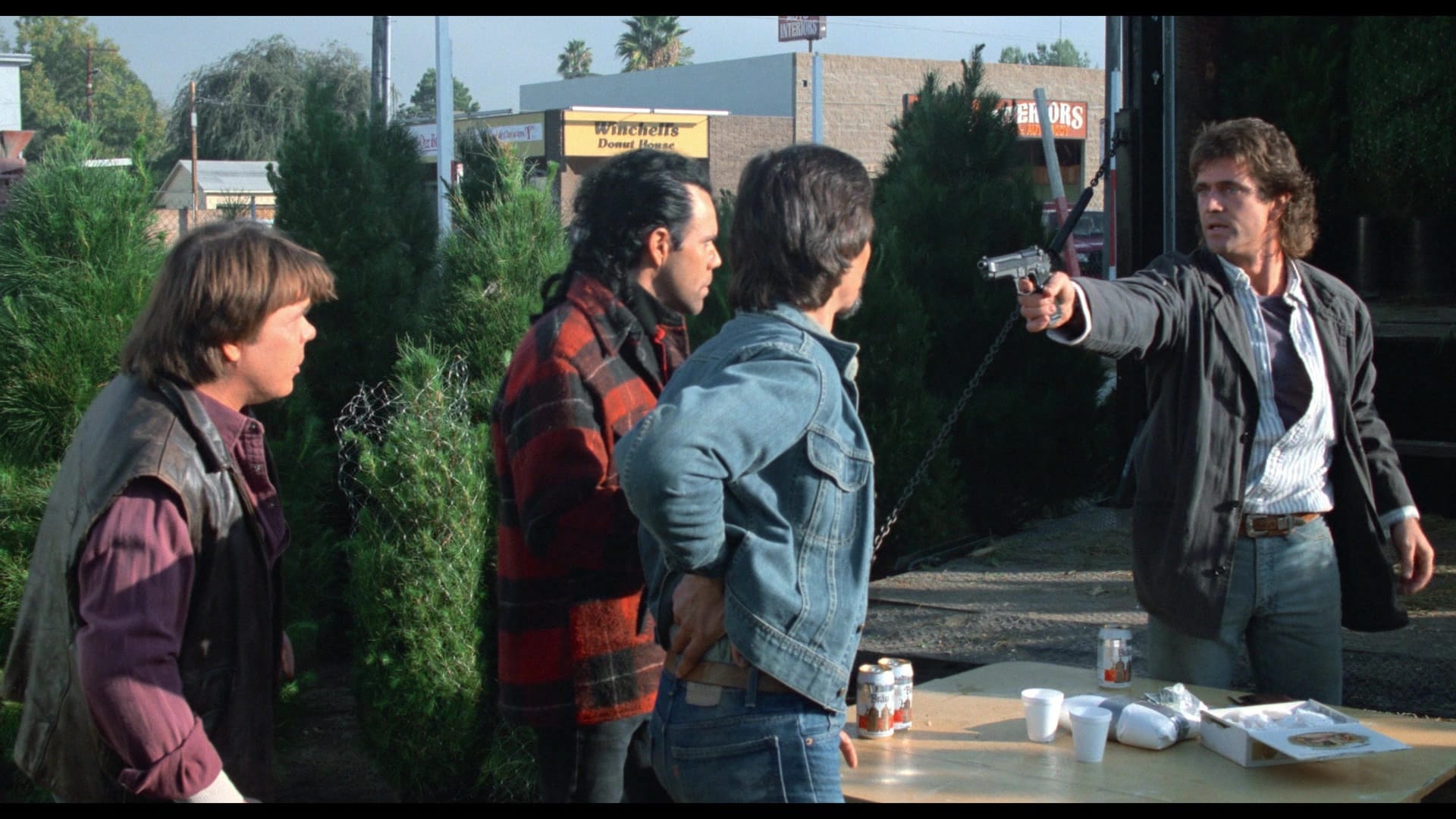
Given the reverence the disc shows towards Donner, it’s strange that the audio commentary he recorded for the Lethal Weapon Blu-ray release isn’t included here – and you won’t find the featurettes created for that set, either. But both the theatrical and director’s cuts are offered here in a near-pristine restoration, Stephen Goldblatt’s sun-blasted cityscapes and neon-glazed night shoots looking fresher and more natural than they have in decades. Both cuts are accompanied by robust Atmos remixes, and the theatrical 2.0 mix is included with that version.
So, there we are. Four (mostly) beloved movies, none of them perfect, all of them souped-up and raring to go. Took me long enough, right? Sorry about that. More to come.
Dark City is now available in 4K and Blu-ray editions from Arrow Video; Swordfish is available now, while Cobra hits the shelves this Tuesday, July 22nd. Those two are only available in 4K from Arrow. (In Canada, you can frequently find them on sale at Unobstructed View.) And Lethal Weapon is now available in 4K from Warner Bros. Discovery Home Entertainment.
Up next: Criterion brings two intimate American classics to 4K, and the world is better for having them. Also, Paramount’s 4K release of Clueless showed up so now I have a fun counterpoint to Warner’s High Society!
